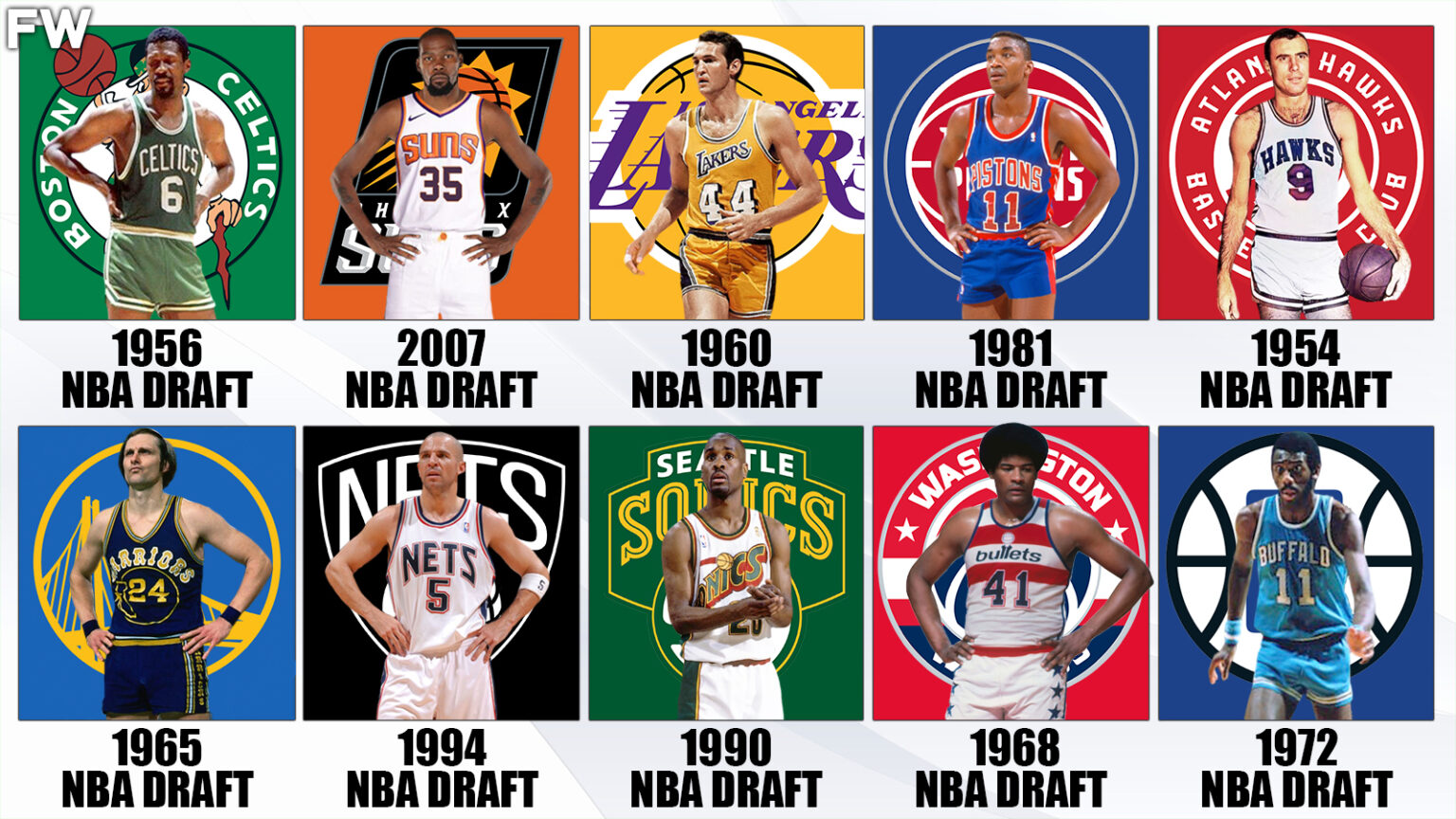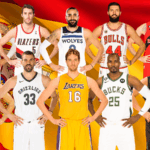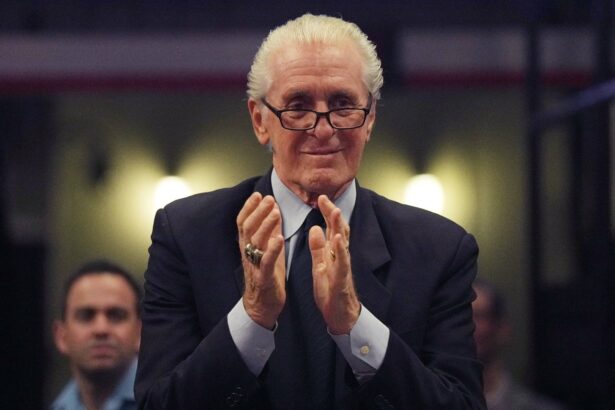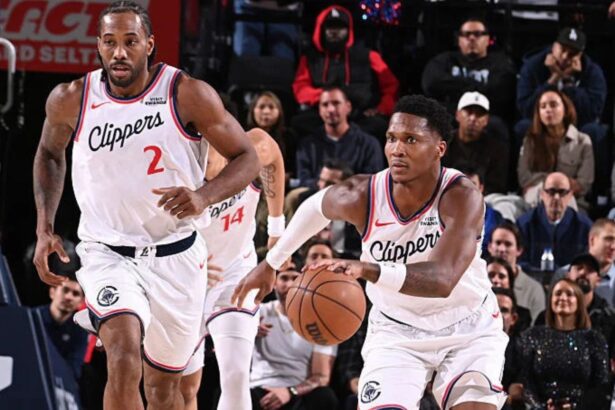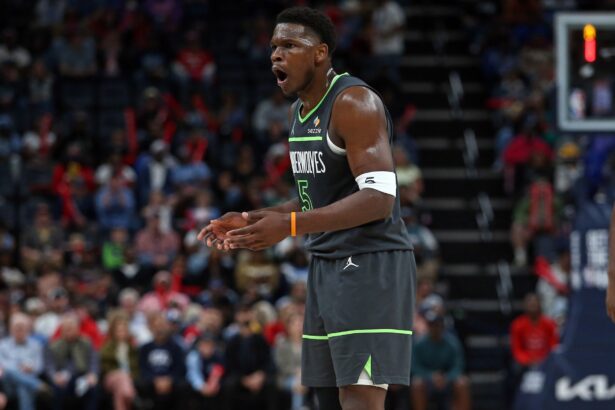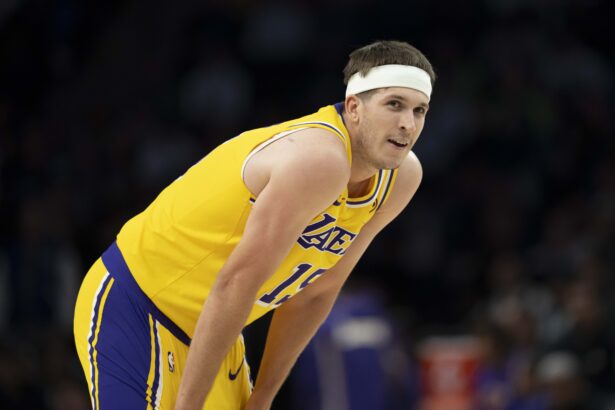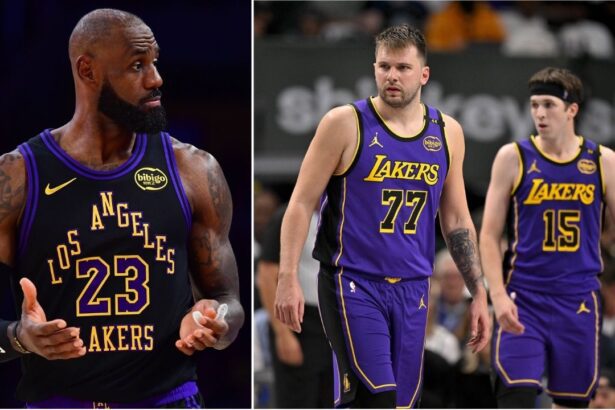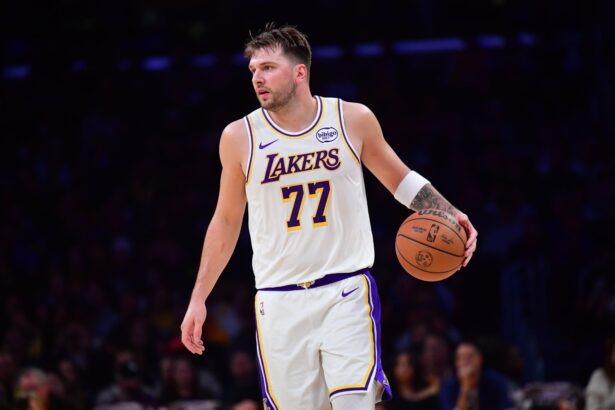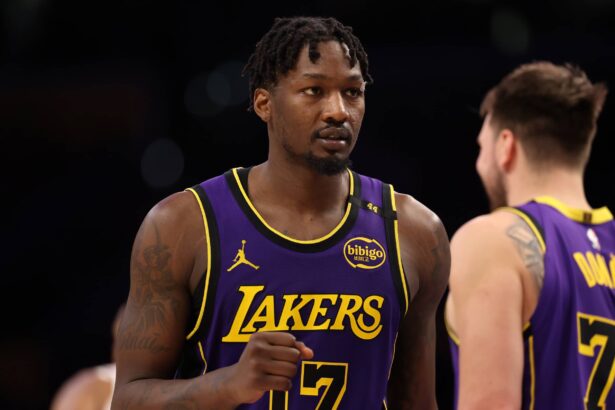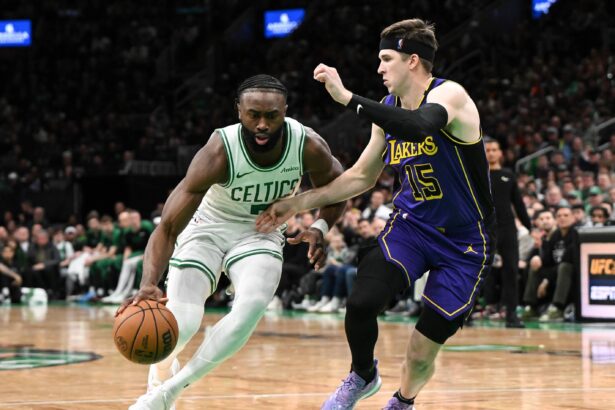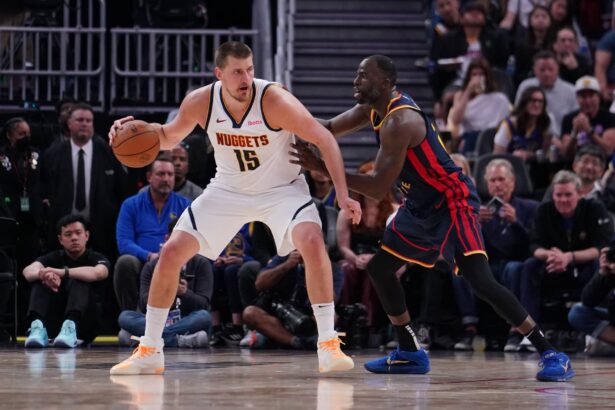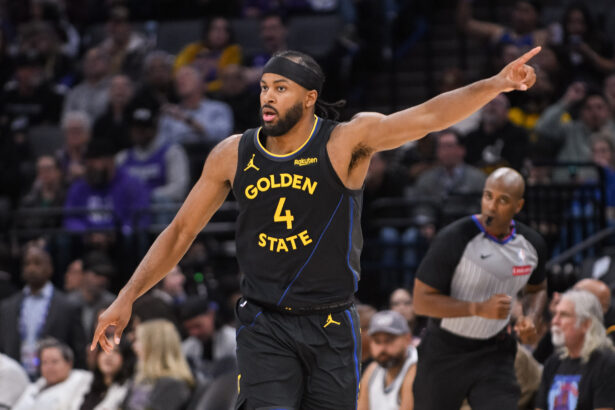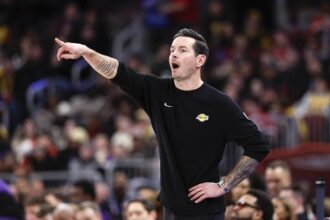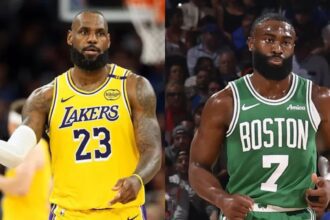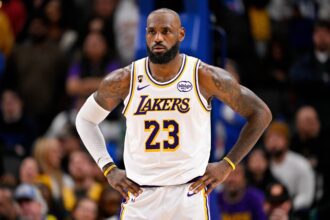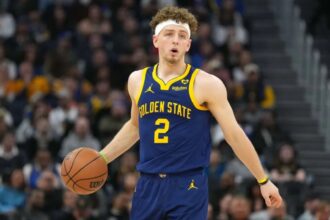The summertime for NBA fans can be a time of little to no excitement with the season and Finals now concluded and free agency all but over with rather quickly. The event of the summer every year is always the night of the NBA Draft, where teams desperately search for their next franchise star or acquire already established ones in exchange for a better position in the draft order. The top of the NBA draft is usually where everyone wanted to be, considering the history of NBA legends who have gone in the top three.
- Honorable Mentions
- Terry Cummings (1982 NBA Draft)
- Steve Francis (1999 NBA Draft)
- 20. Sidney Wicks (1971 NBA Draft)
- 19. Mel Hutchins (1951 NBA Draft)
- 18. Antonio McDyess (1995 NBA Draft)
- 17. Marcus Camby (1996 NBA Draft)
- 16. Rudy Tomjanovich (1970 NBA Draft)
- 15. Ja Morant (2019 NBA Draft)
- 14. Maurice Stokes (1955 NBA Draft)
- 13. Earl Monroe (1967 NBA Draft)
- 12. Dave Bing (1966 NBA Draft)
- 11. Alonzo Mourning (1992 NBA Draft)
- 10. Bob McAdoo (1972 NBA Draft)
- 9. Wes Unseld (1968 NBA Draft)
- 8. Gary Payton (1990 NBA Draft)
- 7. Jason Kidd (1994 NBA Draft)
- 6. Rick Barry (1965 NBA Draft)
- 5. Bob Pettit (1954 NBA Draft)
- 4. Isiah Thomas (1981 NBA Draft)
- 3. Jerry West (1960 NBA Draft)
- 2. Kevin Durant (2007 NBA Draft)
- 1. Bill Russell (1956 NBA Draft)
- Next
- Ranking The NBA Players With The Most MVP Awards And Finals MVP Awards Combined: Michael Jordan Is The GOAT With 11
- NBA Players With The Most Championships: Bill Russell Is The Real Lord Of The Rings
- The All-Time NBA GOAT Pyramid: There Is Only One GOAT
- The Most Accomplished Active NBA Players: Rings, MVPs And Finals MVPs Combined
- The Most Scoring Titles By Position In NBA History: Michael Jordan Is The Ultimate Leader With 10
That pattern was abundantly clear in our list of the 20 greatest No. 1 overall picks in NBA history. Now, we are going to take a look at and rank the immense amount of talent that has been selected at the number two spot. In this draft position, there have been MVPs, scoring champions, and assists and steals leaders, as well as the winningest player in basketball history. Teams have found it hard to miss on a number two overall selection throughout NBA history, and the list below proves it.
Here are the 20 greatest No. 2 overall draft picks in NBA history.
Honorable Mentions
Terry Cummings (1982 NBA Draft)
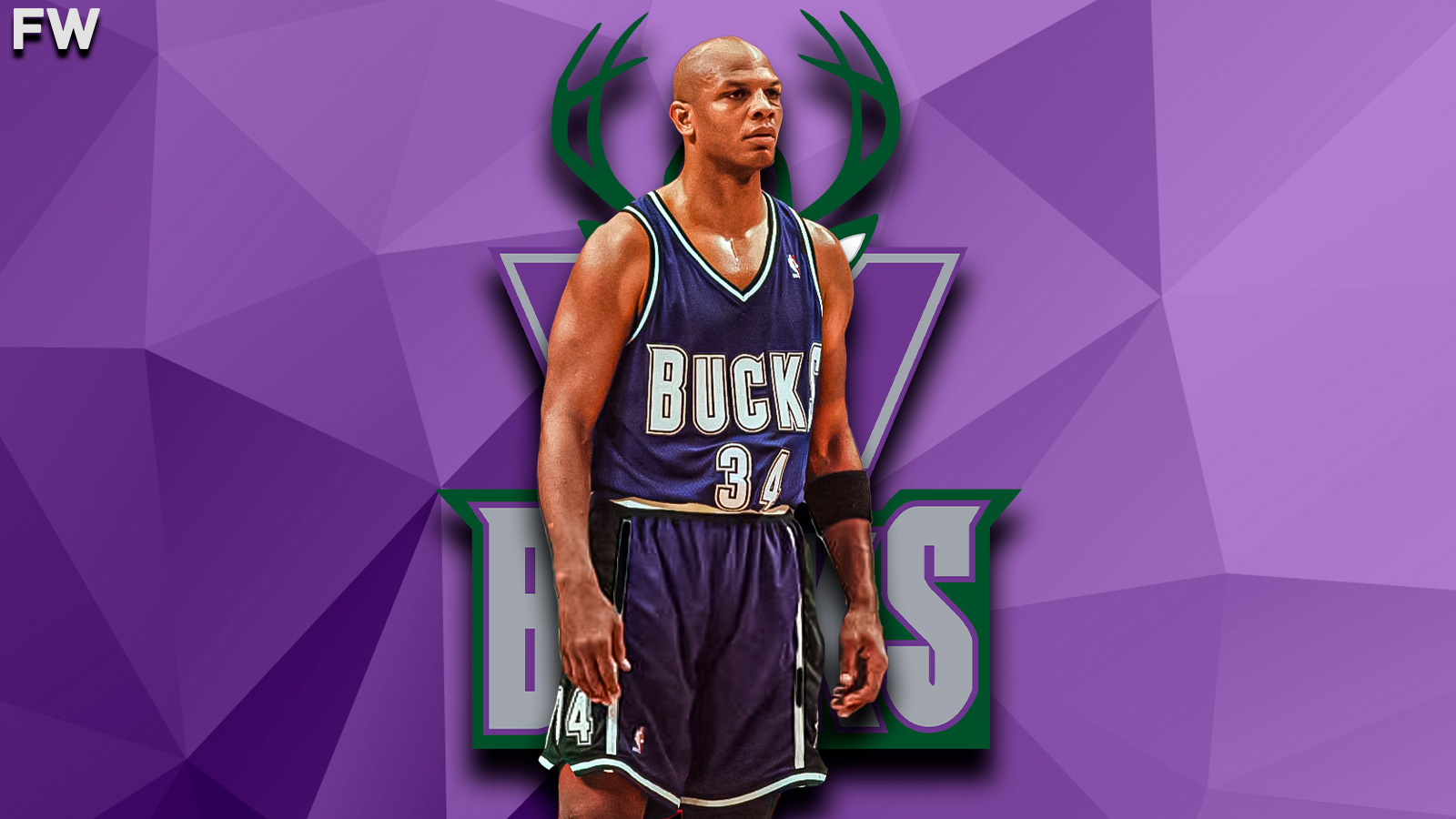
Career Stats: 16.4 PPG, 7.3 RPG, 1.9 APG, 1.1 SPG, 0.5 BPG
Career Achievements: 1x Rookie Of The Year, 2x All-Star, 2x All-NBA Team Selection
Coming out of DePaul University, Terry Cummings was expected to be a star as the second overall pick in 1982. He immediately began to fulfill those expectations as he ran away with the 1983 Rookie of the Year award averaging 23.7 PPG, 10.6 RPG, and 1.8 SPG with the San Diego Clippers. Cummings would play one more season with the Clippers before being shipped to the Bucks in a deal that gave them Marques Johnson in return.
In his first season with the Bucks, Cummings earned his first All-Star selection with 23.6 PPG and 9.1 RPG. He would remain a consistent 20.0 PPG scorer with the Bucks for the next five seasons thru 1990. He earned his second All-Star selection in 1989 before being traded to the Spurs. Cummings would play six seasons with the Spurs at 14.4 PPG and five more seasons with the Bucks, SuperSonics, Sixers, Knicks, and Warriors.
Steve Francis (1999 NBA Draft)
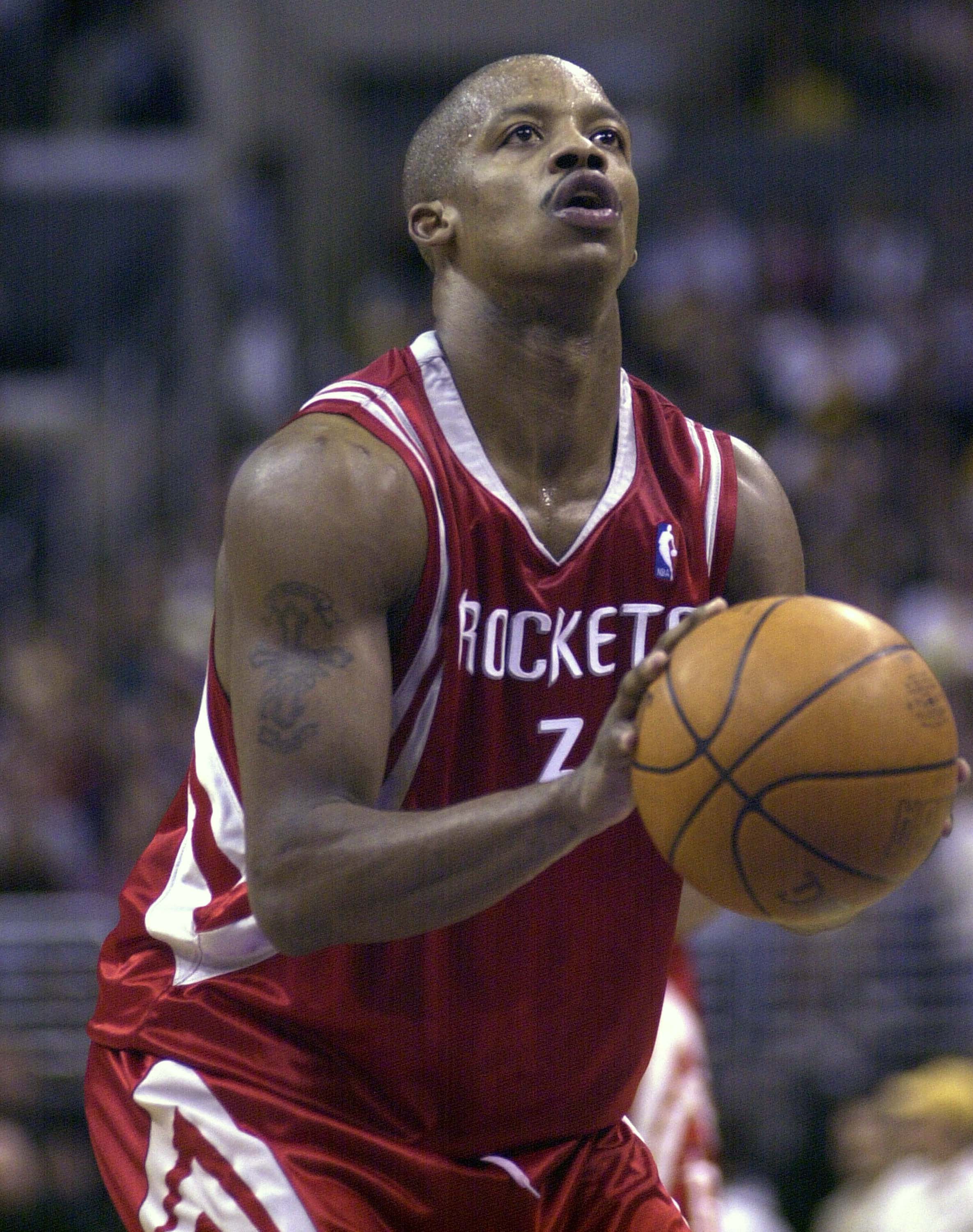
Career Stats: 18.1 PPG, 5.6 RPG, 6.0 APG, 1.5 SPG, 0.4 BPG
Career Achievements: 1x Co-Rookie Of The Year, 3x All-Star
Coming out of Maryland in the late 90s, Steve Francis was highly sought after by many franchises at the top of the 1999 NBA Draft, including the team who drafted him, the Vancouver Grizzlies. As it has been known forever, Francis had no intentions or desires to play in Vancouver and finally force a trade before he had even played a game in the NBA to the Houston Rockets. He would reward Houston with a Co-Rookie of the Year campaign that saw him average 18.0 PPG, 6.6 APG, and 1.5 SPG.
After another great season in 2001, Francis began to really make a name for himself during the 2002 season. This season would be the first of three straight All-Star appearances with the Rockets. Over these three seasons, Francis would average 19.6 PPG, 6.1 RPG, 6.3 APG, and 1.6 SPG. After one-year stints with Orlando, and the knicks, Francis began to fall victim to the injury bug. He would play his last game professionally for the Rockets again in 2007-08 before being forced to retire due to a knee injury.
20. Sidney Wicks (1971 NBA Draft)
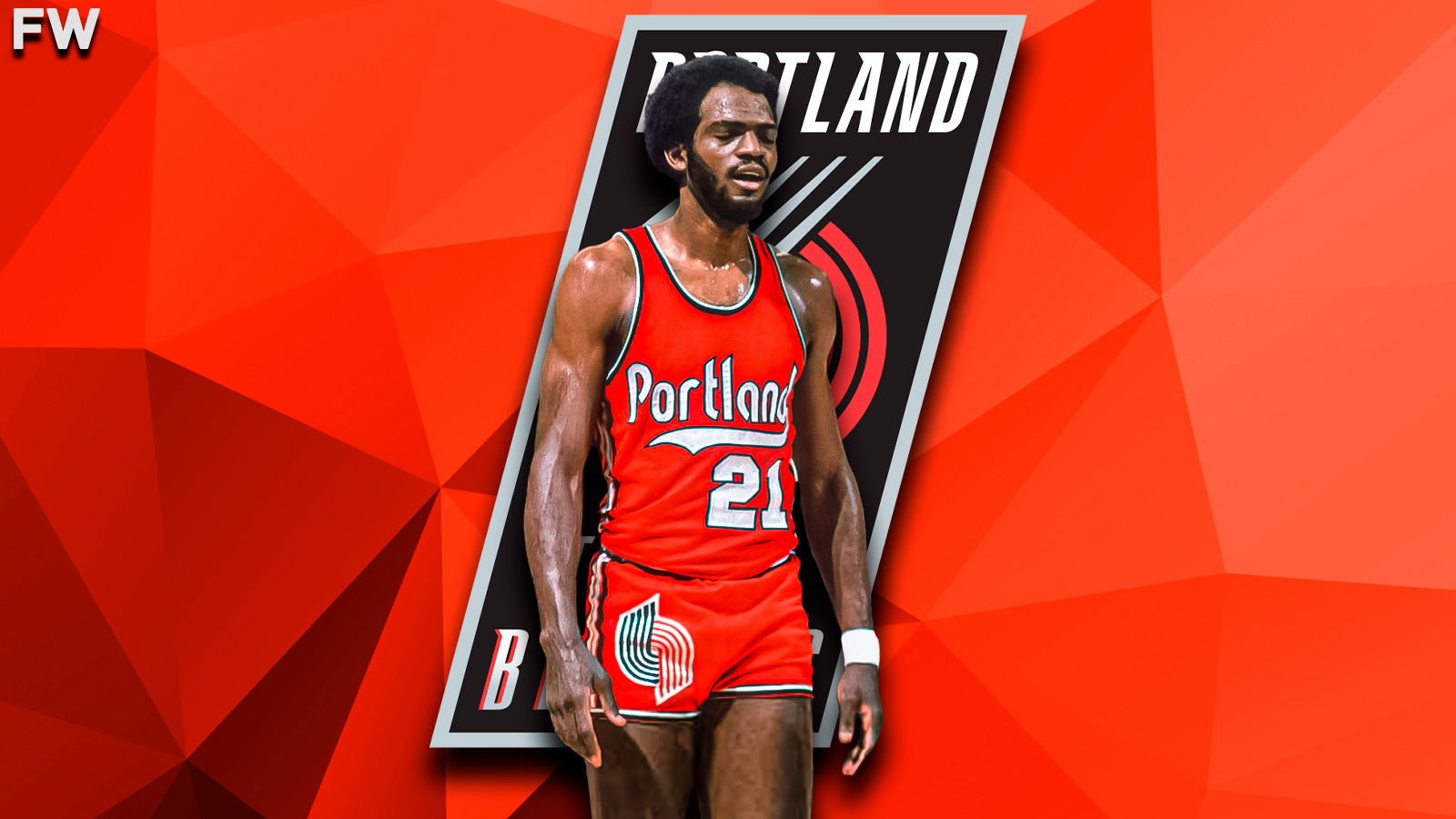
Career Stats: 16.8 PPG, 8.7 RPG, 3.2 APG, 0.8 SPG, 0.6 BPG
Career Achievements: 1x Rookie Of The Year, 4x All-Star
After helping dominate the college ranks at UCLA, Sidney Wicks was on everyone’s radar heading into the 1971 NBA Draft. The Portland Trail Blazers had him fall into their laps with the selection, and Wicks immediately made an impact with them during the 1971-72 season. Wicks would go on to be named the Rookie of the Year with 24.5 PPG and 11.5 RPG on 42.7% shooting from the field.
What followed was more of the same from Wicks, who would make four straight All-Star Games to begin his career with the Trail Blazers. During these four years, Wicks averaged 23.1 PPG and 10.6 RPG on 45.6% shooting from the field. After his fifth season in Portland, Wicks would play five more seasons in the NBA with the Celtics and Clippers before opting to play in Italy in 1981. Wicks would only ever make the playoffs one time in his career with the Celtics in 1977, and would never win an NBA championship.
19. Mel Hutchins (1951 NBA Draft)
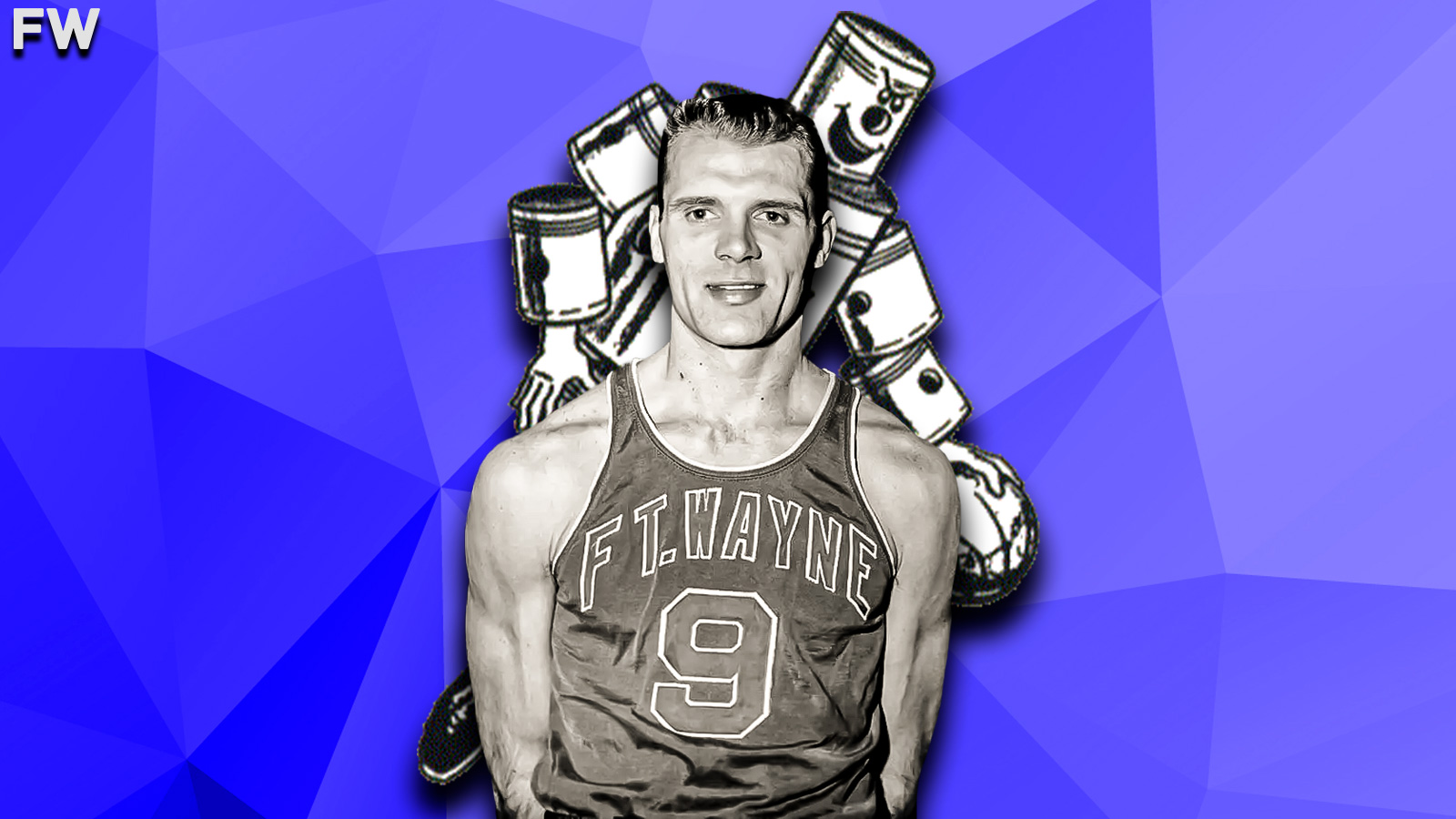
Career Stats: 11.1 PPG, 9.6 RPG, 3.0 APG
Career Achievements: 1x Rookie Of The Year, 4x All-Star
After winning an NIT championship in college with BYU, Mel Hutchins was set to take his career to the next level in the NBA. Hutchins was selected second overall by the Milwaukee Hawks, who would be the home of another legendary second-overall pick a few years later. Hutchins would get his career started with a Rookie of the year season that saw him average 9.2 PPG and 13.3 RPG. In his second and final season with the Hawks, Hutchins made his first All-Star team averaging 11.7 PPG and 11.2 RPG.
Mel Hutchins would move on to the Fort Wayne Pistons for the 1953-54 season, where he would remain for the next four seasons. With the Pistons, Hutchins earned three more All-Star appearances and averaged 11.7 PPG and 8.6 RPG in his time there, with four appearances in the playoffs. Hutchins would play one more season in the NBA in 1957-58 with the New York Knicks before retiring at age 29.
18. Antonio McDyess (1995 NBA Draft)
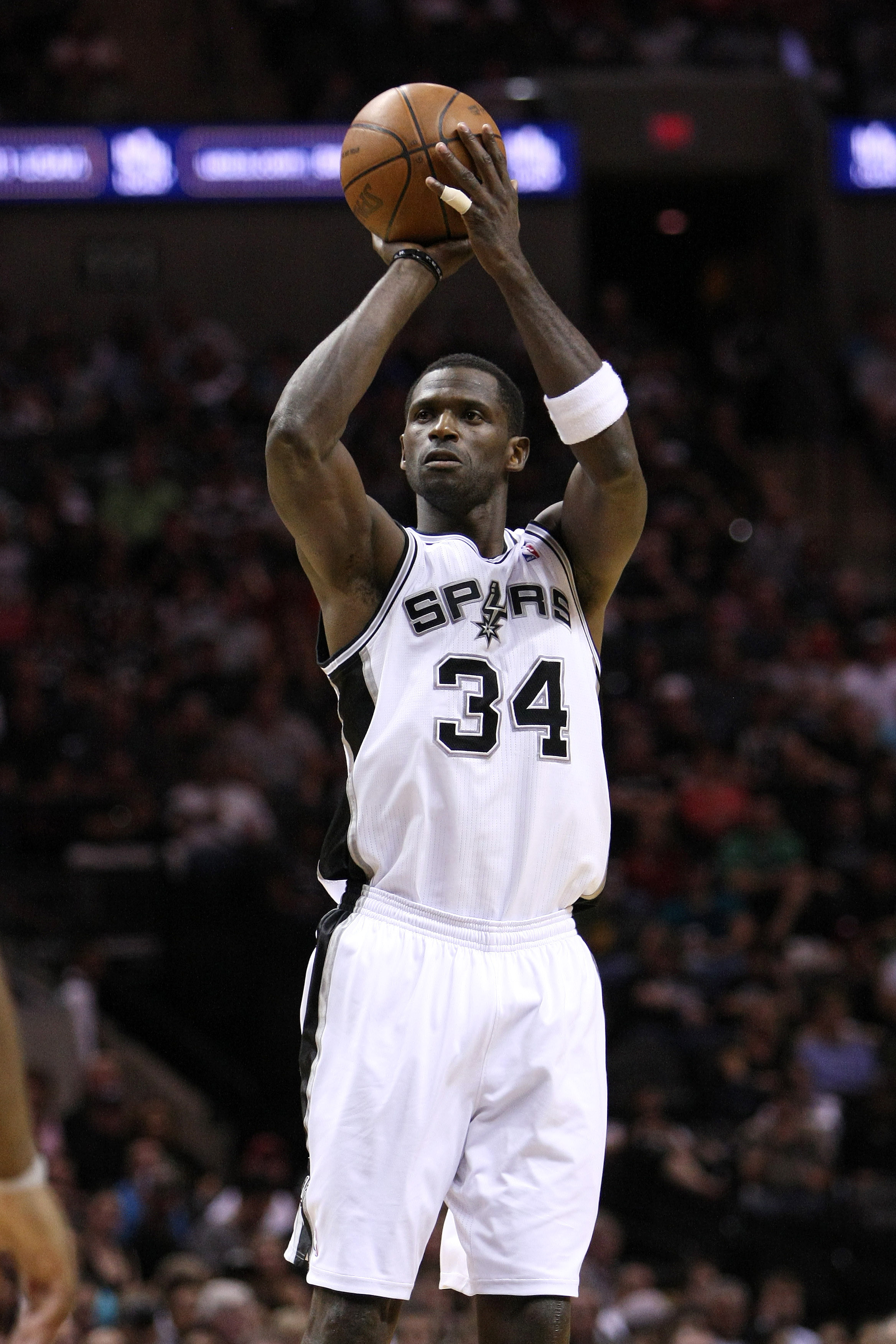
Career Stats: 12.0 PPG, 7.5 RPG, 1.3 APG, 0.8 SPG, 1.1 BPG
Career Achievements: 1x All-Star, 1x All-NBA Team Selection
When the 1995 NBA Draft rolled around, the general consensus was that Antonio McDyess was the best big man in the country and a top draft prospect who could help any NBA team immediately. The Los Angeles Clippers decided to select McDyess with the second pick but immediately traded him to the Denver Nuggets in a draft night blockbuster deal. After two seasons with Denver, McDyess would spend one season in Phoenix with the Suns before returning in 1998-99.
McDyess would have a much more impactful second stint in Denver, averaging 19.8 PPG, 10.1 RPG, and 1.7 BPG in his first four seasons. This included his only All-Star selection in 2001. McDyess would suffer a knee injury in 2001-02 that would cost him the entire following season. He would never return to form after the injury but still managed to play eight more above-average seasons with the Knicks, Pistons, and Spurs.
17. Marcus Camby (1996 NBA Draft)
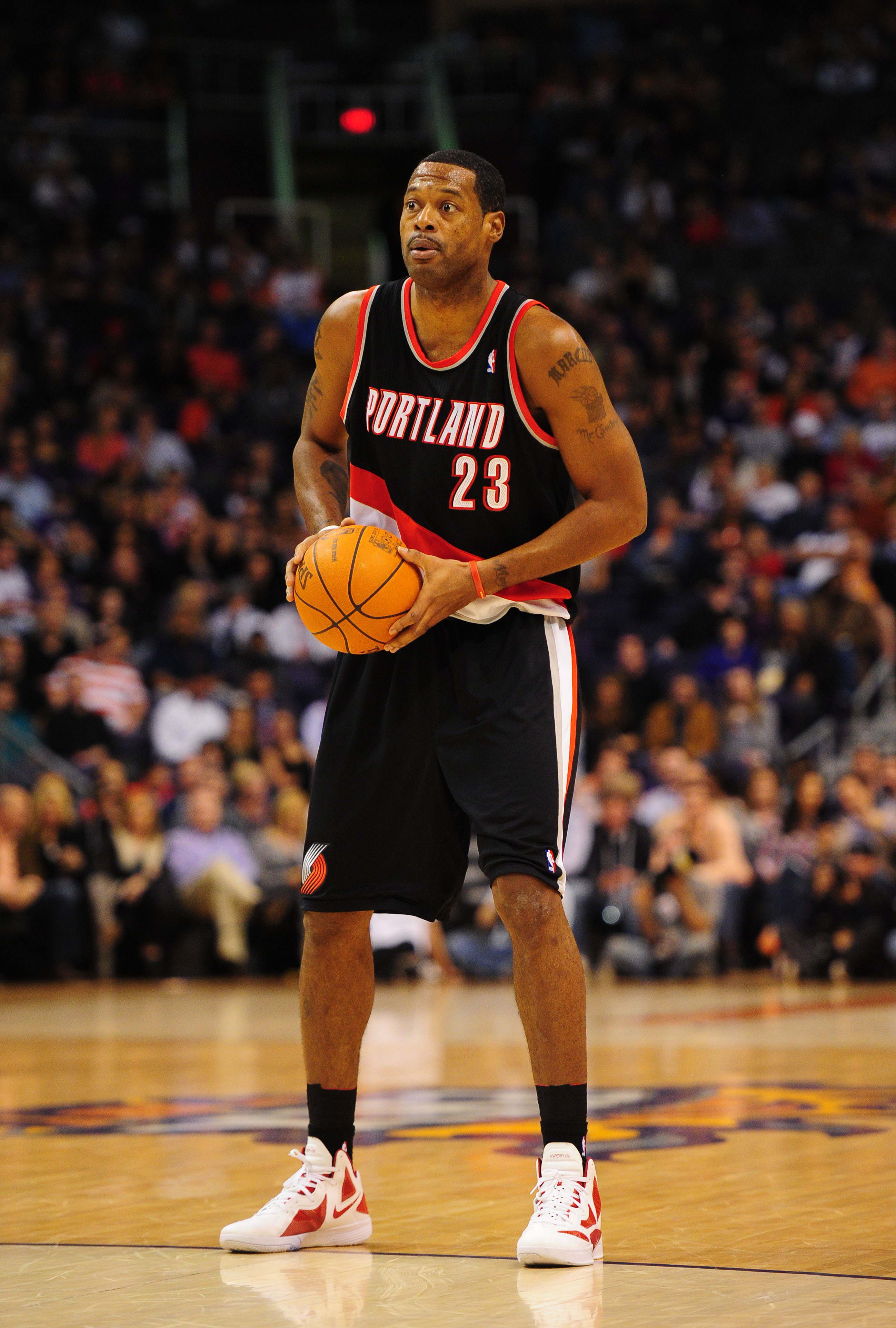
Career Stats: 9.5 PPG, 9.8 RPG, 1.9 APG, 1.0 SPG, 2.4 BPG
Career Achievements: 1x Defensive Player Of The Year, 4x All-Defensive Team Selection
After a dominant and accolade-filled career at the University of Massachusetts, Marcus Camby was the most sought-after big man in the 1996 NBA Draft. Camby was especially attractive to teams because of his ability to block shots and protect the rim at an already elite level. Camby would show that ability almost immediately, with the Toronto Raptors even leading the NBA in blocks in his second season with 3.7 BPG.
After two seasons with the Raptors, Camby would anchor a 1999 Knicks Finals team with his interior defensive abilities. Camby would spend five seasons with the Knicks before ending up with the Nuggets in 2002-03. From 2006 thru 2008, Camby would lead the NBA in blocks each season with Denver and win the 2007 Defensive Player of the Year award. Camby would have a 17-year NBA career and would go down as one of the great defensive players of the 2000s.
16. Rudy Tomjanovich (1970 NBA Draft)
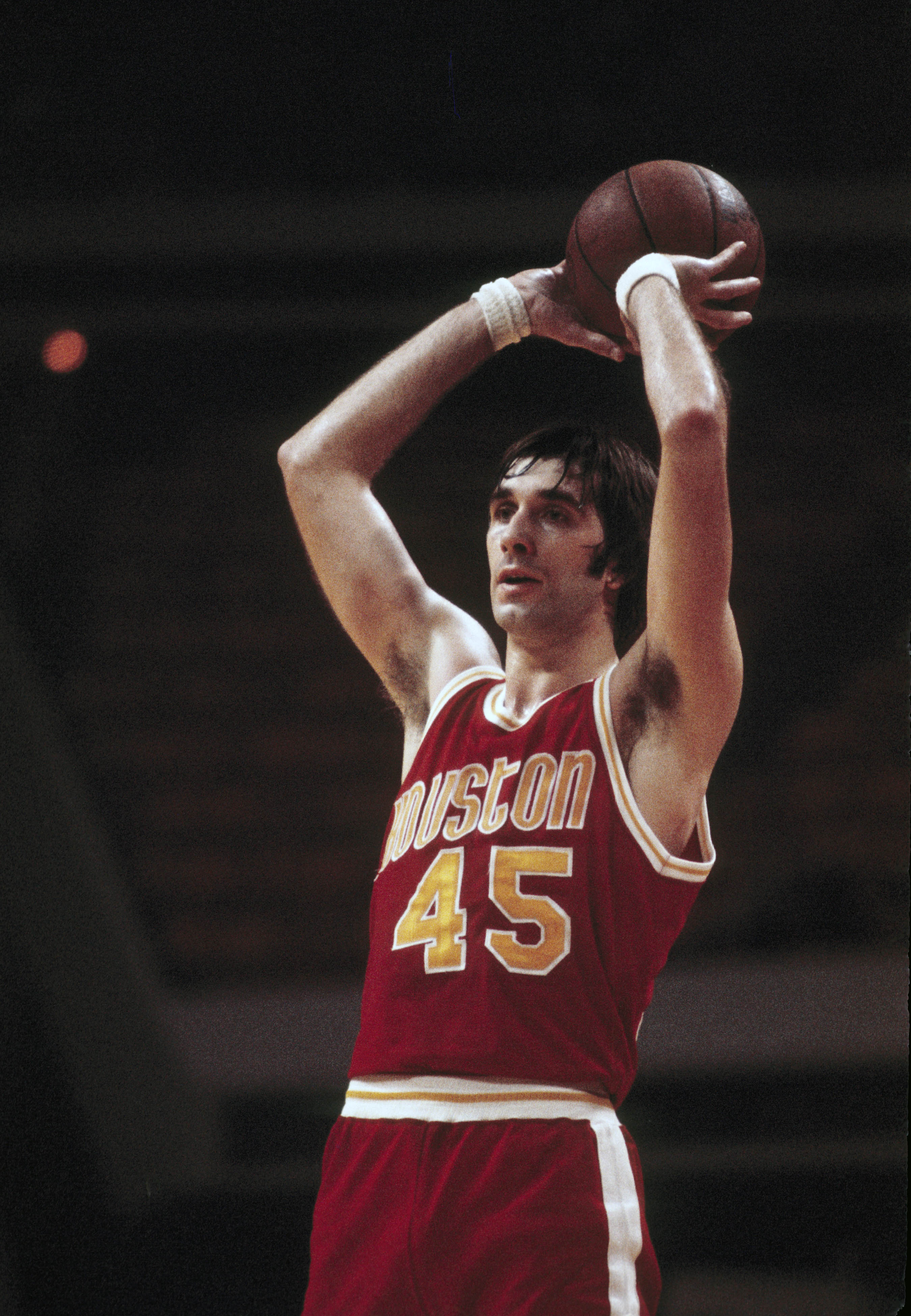
Career Stats: 17.4 PPG, 8.1 RPG, 2.0 APG, 0.5 SPG, 0.2 BPG
Career Achievements: 5x All-Star
Rudy Tomjanovich is much more well-known for his coaching the Rockets to back-to-back championships than he is for his own playing days with the team from 1971n thru 1981. Tomjanovich took three seasons to begin to reach his potential with the Rockets before becoming one of the greatest players in franchise history.
In his fourth season with the team, Tomjanovich averaged 24.5 PPG and 9.0 RPG, earning his first All-Star appearance. Tomjanovich would make three more All-Star teams in a row before suffering a serious injury due to a punch from Lakers player Kermit Washington on the court. Tomjanovich would become an All-Star once again in 1979 with 19.0 PPG and 7.7 RPG. Tomjanovich would play two more seasons with the Rockets, having spent his entire 11-year career with the team, and has since had his jersey hung in the rafters for all to remember what a legend he was for them.
15. Ja Morant (2019 NBA Draft)
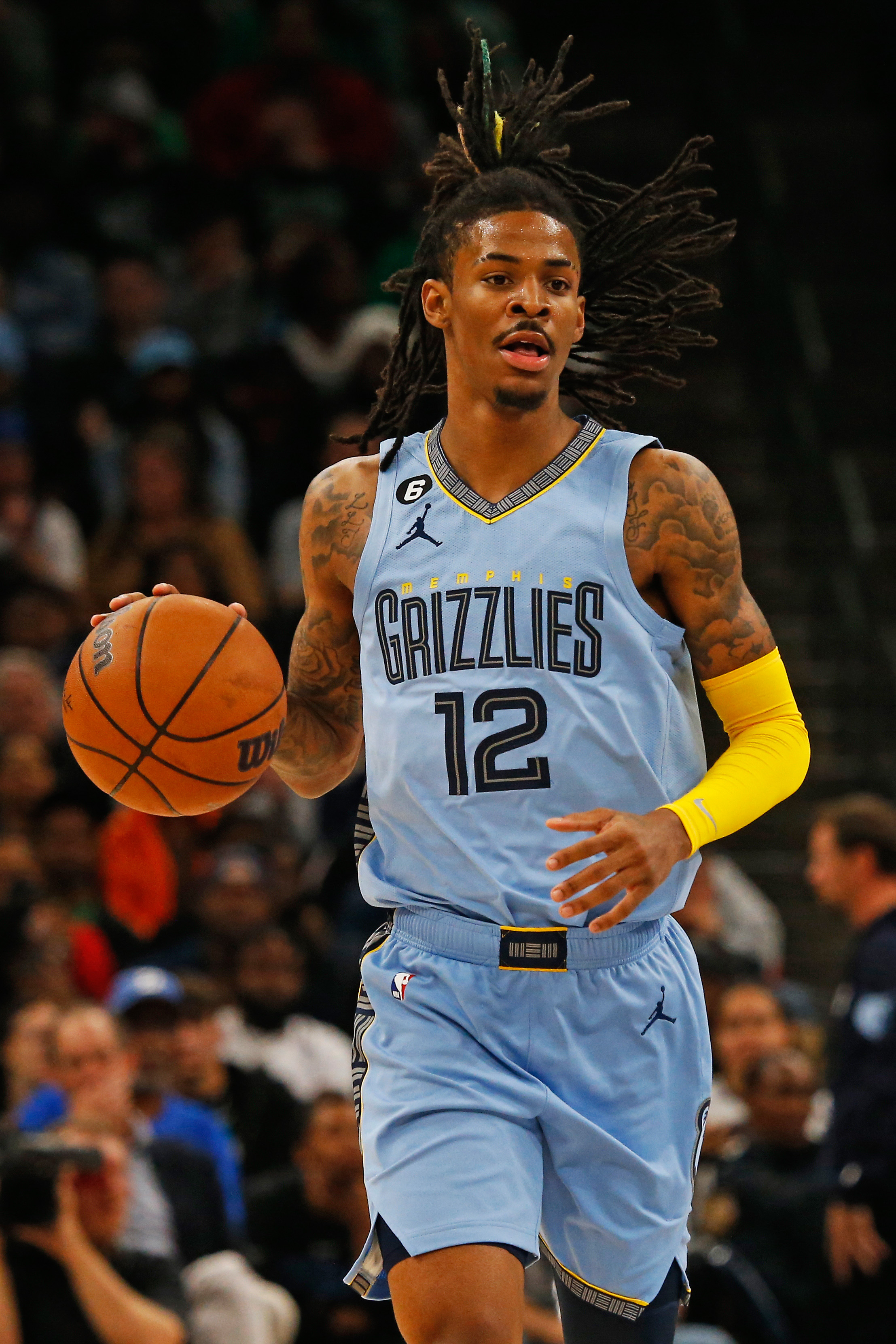
Career Stats: 22.5 PPG, 4.8 RPG, 7.4 APG, 1.0 SPG, 0.3 BPG
Career Achievements: 1x Rookie Of The Year, 1x Most Improved Player, 2x All-Star, 1x All-NBA Team Selection
Ja Morant is currently one of the most electric players in the NBA. Although he may be facing one of the longest suspensions in NBA history should he be found guilty of anything by the NBA in the coming weeks, Morant’s talent and electricity cannot be denied. After being selected right after Zion Williamson in the 2019 NBA Draft, Morant would go on to win the Rookie of the Year award behind a strong campaign with 17.8 PPG and 7.3 APG.
In 2022, Morant broke out with more explosiveness than anyone knew he was capable of. Morant was an MVP candidate for most of the season and ended up winning the Most Improved Player award with 27.4 PPG, 5.7 RPG, 6.7 APG, and 1.2 SPG. Morant was also awarded his first All-NBA Team selection and led the Grizzlies to 56 wins. Morant was again having a stellar season in 2023 before off-the-court issues caught up with him. Let’s hope things get settled quickly, as the league is a better place with Ja Morant on the court.
14. Maurice Stokes (1955 NBA Draft)
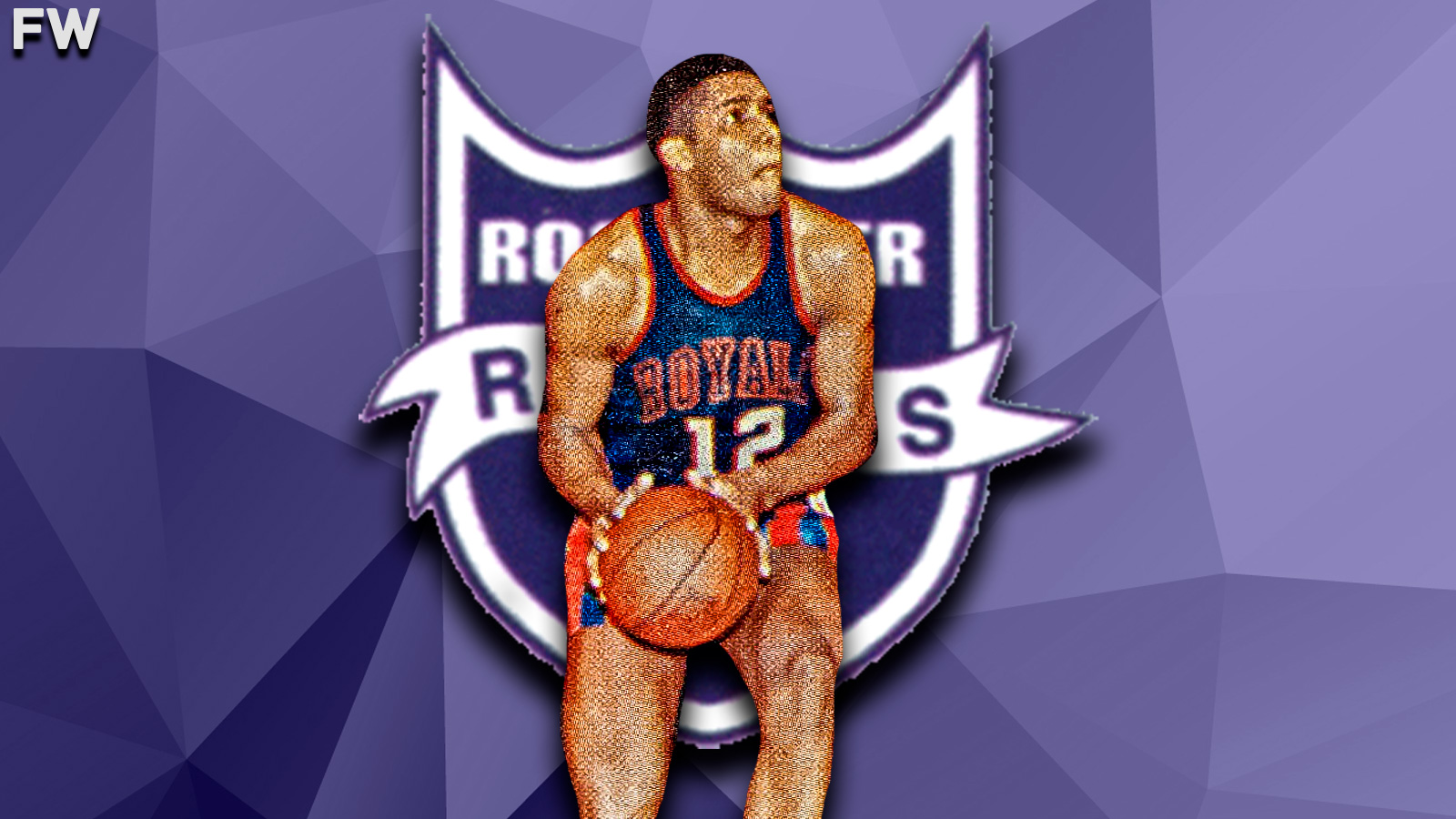
Career Stats: 16.4 PPG, 17.3 RPG, 5.3 APG
Career Achievements: 1x Rookie Of The Year, 3x All-Star, 3x All-NBA Team Selection
The curious case of Maurice Stokes began back in 1955 when he was drafted second overall by the Rochester Royals. Stokes began his career as the NBA’s Rookie of the Year with 16.8 PPG and an NBA-leading 16.3 RPG. In his second season with the Royals, Stokes would set an NBA record (at the time) for the most rebounds in a single season with 1,256.
Stokes would have one more All-Star and All-NBA season in 1957-58, the Royals’ first season in Cincinnati. He would average 16.9 PPG and 18.1 RPG that season and led the Royals to the playoffs. Unfortunately, Stokes would play just one more game in the NBA. He was forced to retire at the end of the 1958 season after being diagnosed with post-traumatic encephalopathy.
13. Earl Monroe (1967 NBA Draft)
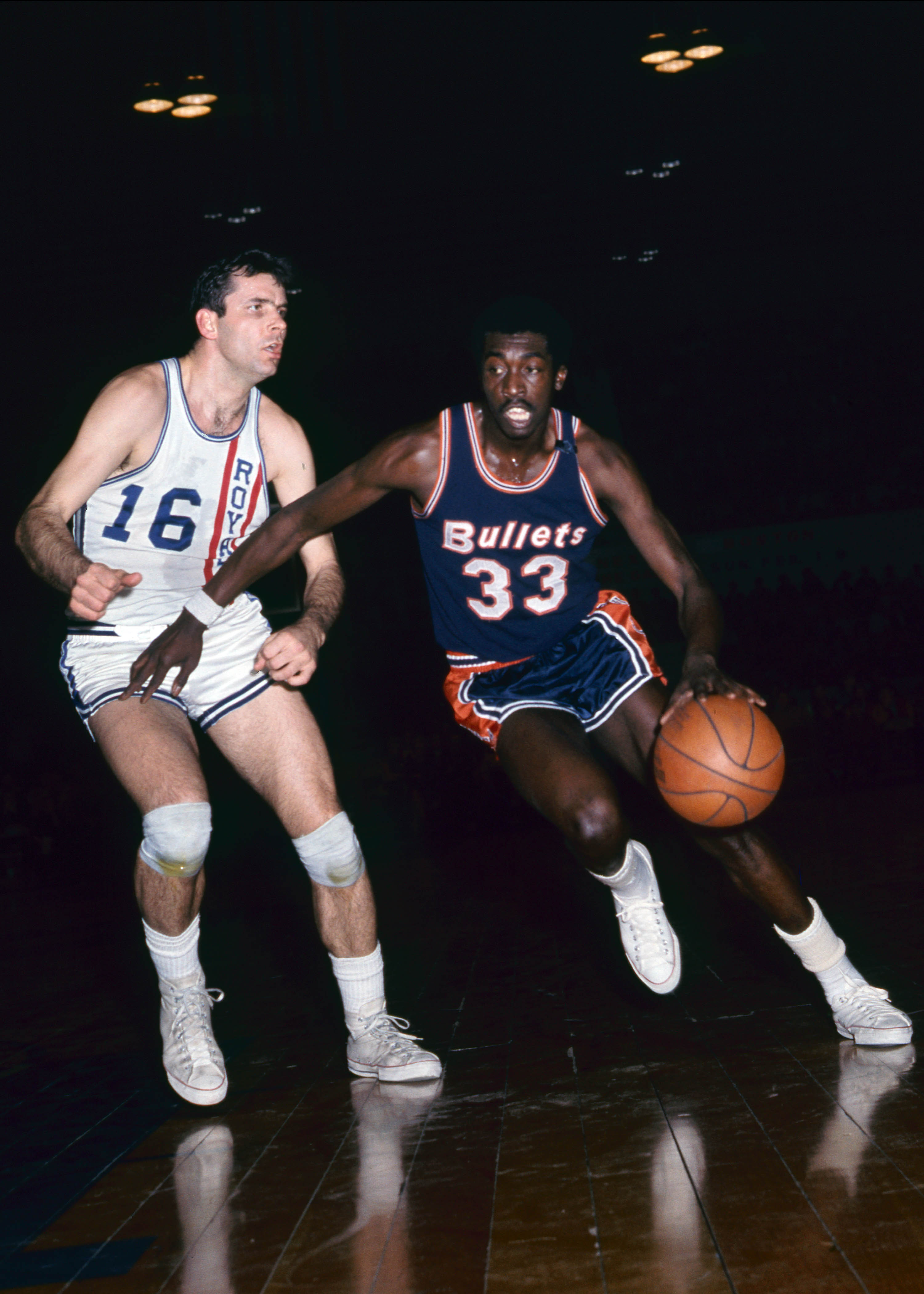
Career Stats: 18.8 PPG, 3.0 RPG, 3.9 APG, 0.5 SPG, 0.1 BPG
Career Achievements: 1x Rookie Of The Year, 4x All-Star, 1x All-NBA Team Selection
Earl “The Pearl” Monroe is quite easily one of the greatest shooting guards to ever play the game of basketball. As a member of the Baltimore Bullets during his earlier seasons, Monroe was a Rookie of the Year in his first season, averaging 24.3 PPG, 5.7 RPG, and 4.3 APG as the Bullets continued to compete for playoff and championship berths. He would become an All-Star for the team in both 1969 and 1971 before being shipped out of town to the Knicks in 1971-72.
Monroe would be the perfect backcourt teammate to pair with Walt Frazier for New York, as the pair would lead the Knicks to the Finals in 1973. They would also deliver a championship, with Monroe averaging 15.5 PPG on the season. Monroe would earn two more All-Star selections in 1975 and 1977 with the Knicks as he would end his career there in 1980. Monroe’s NBA career is still widely celebrated by fans, young and old, especially by those who reside in New York.
12. Dave Bing (1966 NBA Draft)
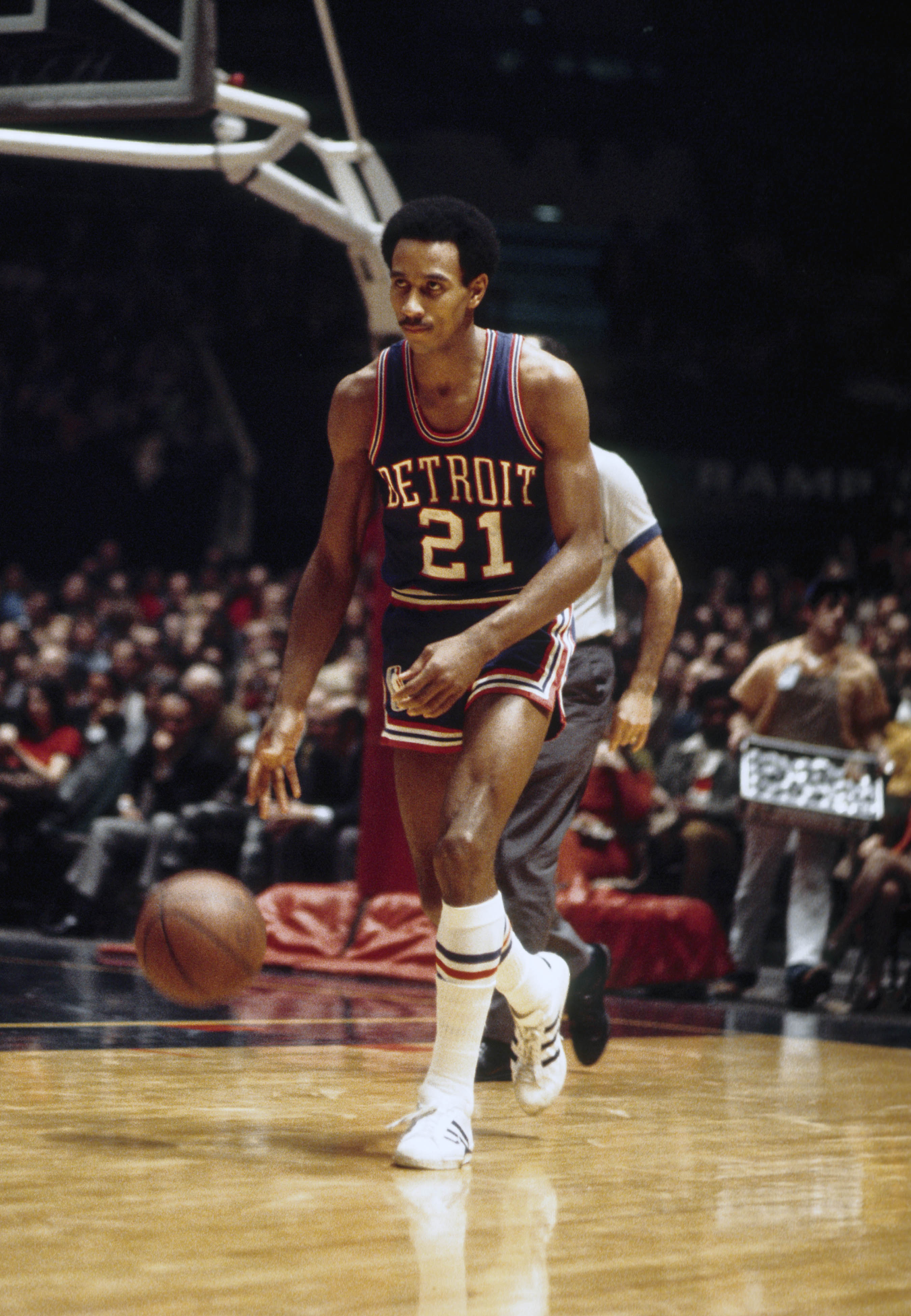
Career Stats: 20.3 PPG, 3.8 RPG, 6.0 APG, 0.5 SPG, 0.1 BPG
Career Achievements: 1x Rookie Of The Year, 7x All-Star, 1x All-Star Game MVP, 3x All-NBA Team Selection
Aside from being named to the NBA’s 75th Anniversary Team, Dave Bing’s career is an underrated one historically. Bing burst onto the scene in 1966-67 when he earned a Rookie of the Year award playing for the Detroit Pistons. Bing averaged 20.0 PPG, 4.5 RPG, and 4.1 APG to win the award. The following two seasons would be the first two All-Star selections of Bing’s career when he averaged 25.3 PPG, 4.8 RPG, and 6.8 APG over that span.
As Bing entered the 70s, his play got even better as he remained a 20.0 PPG threat as well as one of the NBA’s top playmakers. Bing would earn five All-Star selections in six seasons from 1971 thru 1976 and averaged 20.9 PPG and 6.7 APG over that six-year time frame. Bing would go on to play two more seasons in the NBA with the Bullets and Celtics before retiring after the 1978 season. Bing’s lack of a championship makes him one of the greatest to never achieve that honor.
11. Alonzo Mourning (1992 NBA Draft)
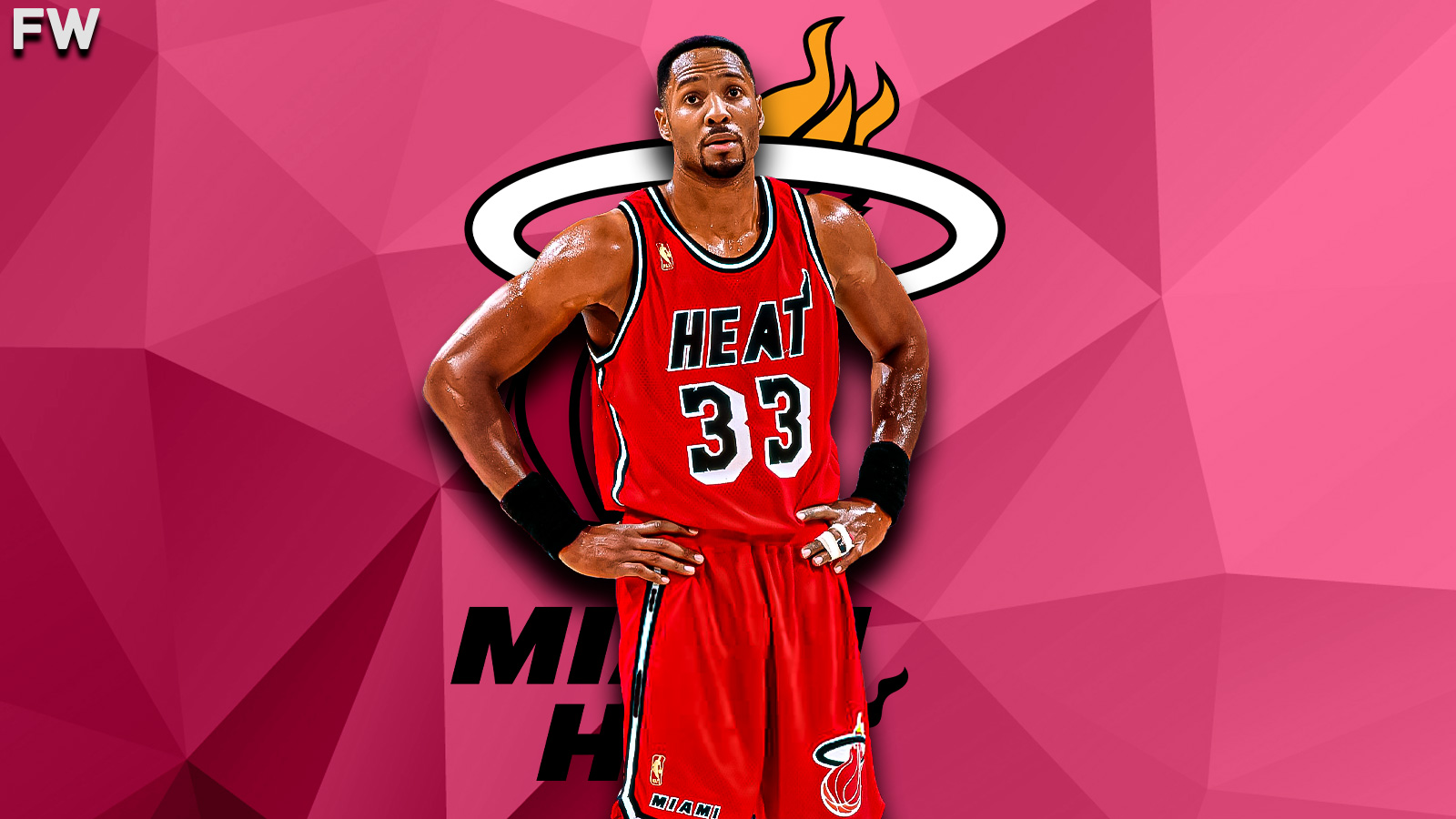
Career Stats: 17.1 PPG, 8.5 RPG, 1.1 APG, 0.5 SPG, 2.8 BPG
Career Achievements: 2x Defensive Player Of The Year, 7x All-Star, 2x All-NBA Team Selection, 2x All-Defensive Team Selection
Alonzo Mourning should be included on the list of the biggest what-ifs in NBA history, but I will get to that in a moment. Mourning was a physically imposing center on both ends of the court in his career with the Charlotte Hornets, New Jersey Nets, and Miami Heat. Mourning would be a 21.0 PPG and 10.3 RPG player in his inaugural season in the NBA with Charlotte and an All-Star the following season for the first time with identical numbers. His All-Star days were far from over, as he would make the next three straight as a member of the Hornets and Heat.
In his first season in Miami, Mourning averaged 23.2 PPG, 10.4 RPG, and 2.7 BPG. Later in his career, Mourning would win back-to-back Defensive Player of the Year awards in 1999 and 2000. He led the NBA both seasons in blocks with 3.9 and 3.7 BPG, respectively. After the 2002 season, Mourning would be diagnosed with Kidney disease and miss the entire 2003 campaign. After a brief stint with the Nets, Mourning returned to the heat in 2004-05. He would play a key role off the bench for them in their 2006 NBA championship run, capping off an incredible career for one of the great centers in NBA history.
10. Bob McAdoo (1972 NBA Draft)
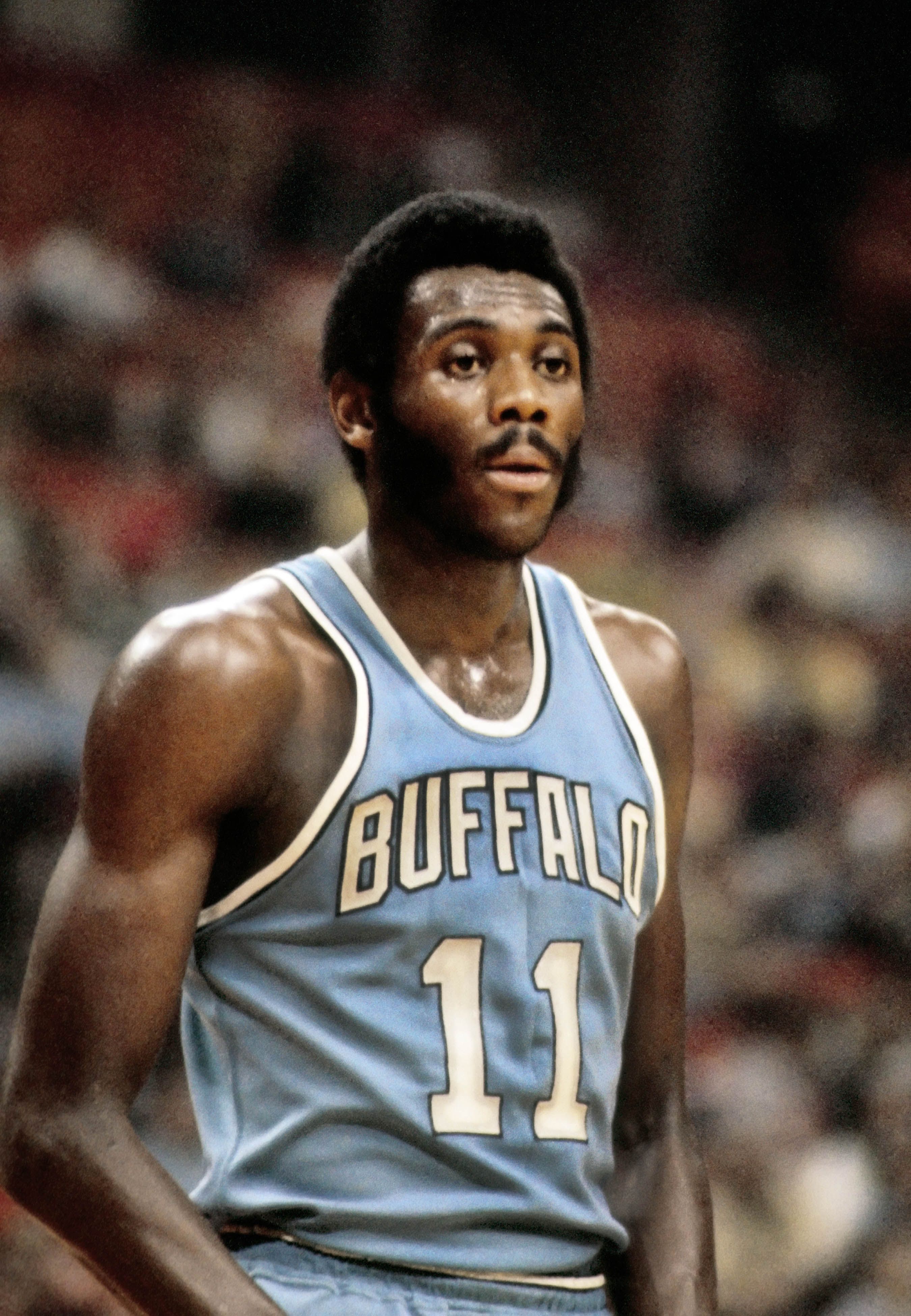
Career Stats: 22.1 PPG, 9.4 RPG, 2.3 APG, 0.9 SPG, 1.3 BPG
Career Achievements: 1x MVP, 1x Rookie Of The Year, 5x All-Star, 2x All-NBA Team Selection
Bob McAdoo is another player from the pre-90s NBA that doesn’t get nearly the amount of credit he should for a legendary career. McAdoo began his career with the Buffalo Braves in 1972-73 when he took home the MVP award averaging 18.0 PPG and 9.1 RPG. The next three seasons would be McAdoo’s finest as he would take home three straight scoring titles averaging over 30.0 PPG each season as well as over 12.0 RPG each season. This included his 1975 MVP season that saw him average 34.5 PPG and 14.1 RPG.
McAdoo continued to be a consistent 20.0 PPG scorer with the Knicks, Celtics, and Pistons through 1980. Even off the bench with the Lakers in the 80s, McAdoo played a big role. In 1982, McAdoo won the NBA championship with the Lakers averaging 16.7 PPG and 6.8 RPG in just 27.2 minutes of play. He would net another title with the Lakers in 1985, averaging 11.4 PPG and 4.5 RPG in just 20.9 minutes of action.
9. Wes Unseld (1968 NBA Draft)
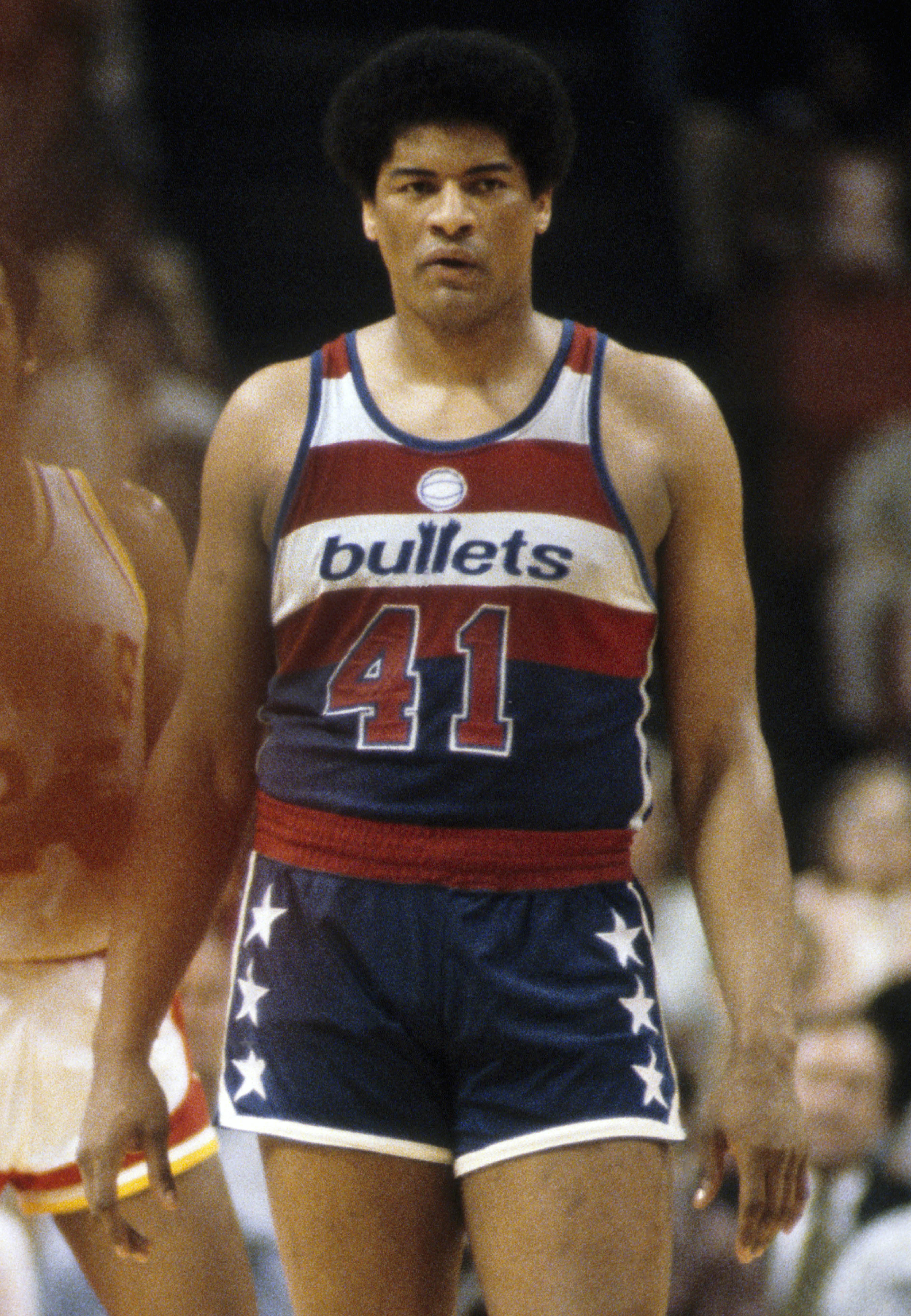
Career Stats: 10.8 PPG, 14.0 RPG, 3.9 APG, 0.6 SPG, 0.4 BPG
Career Achievements: 1x Finals MVP, 1x MVP, 1x Rookie Of The Year, 5x All-Star, 1x All-NBA Team Selection
Wes Unseld is one of the great rebounders and defenders in NBA history. In his rookie season with the Baltimore bullets, Unseld made history, winning the Rookie of the Year and MVP in the same season with 13.8 PPG and 18.2 RPG. It was one of the lowest-scoring MVP seasons ever. Unseld would also be an All-Star in four of his first five seasons as well as one more time in 1975.
During the 70s, Unseld had the Bullets constantly in championship contention. In 1978, their hard dues paid off as they defeated the Seattle SuperSonics in the NBA Finals. Unseld had one of the lowest-scoring Finals MVP performances in NBA history, averaging 9.0 PPG and 11.7 RPG. Unseld would retire in 1981 with career averages of 10.8 PPG and 14.0 RPG, as well as an MVP and Finals MVP award.
8. Gary Payton (1990 NBA Draft)
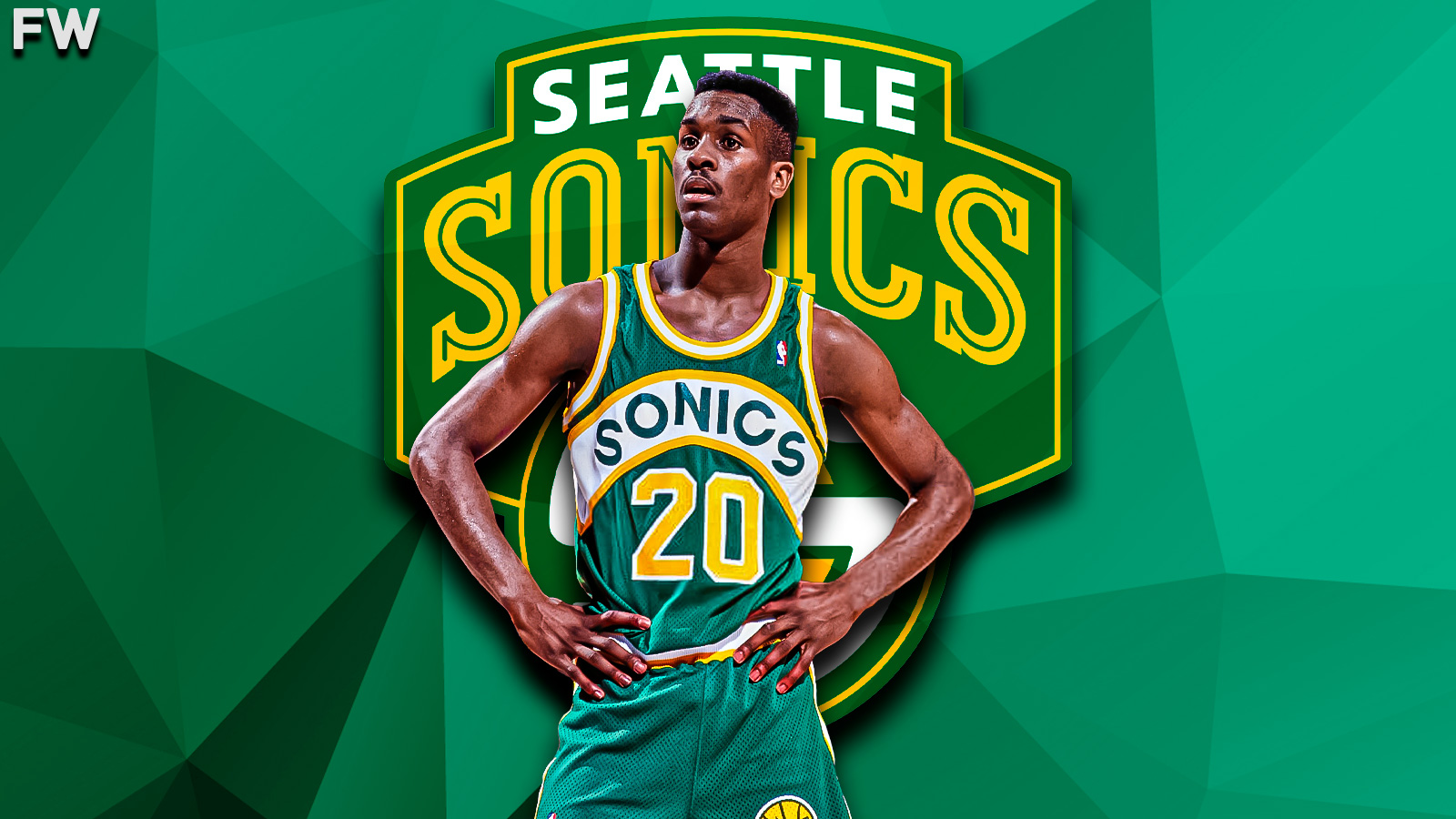
Career Stats: 16.3 PPG, 3.9 RPG, 6.7 APG, 1.8 SPG, 0.2 BPG
Career Achievements: 1x Defensive Player Of The Year, 9x All-Star, 9x All-NBA Team Selection, 9x All-Defensive Team Selection
When we speak about the great guard defenders in NBA history, Gary Payton’s name is almost exclusively mentioned first. Payton was a high-energy, trash-talking point guard who, once he established himself as one of the game’s best, never stopped. Payton was drafted to Seattle in 1990 and took three seasons to really fill out as an NBA-level point guard. Payton would earn his first All-Star selection in 1994, averaging 16.5 PPG, 6.0 APG, and 2.3 SPG. He led the NBA in steals in 1996 with 2.9 SPG and was awarded the Defensive Player Of The Year award, the first point guard to ever win it.
He would also lead the SuperSonics to the NBA Finals in 1996 but was met with the buzzsaw that was the 1996 Chicago Bulls. From 1995 through 2003, Payton averaged at least 19.0 PPG and 7.0 APG every year and made all nine of his All-NBA Teams during this time. In 2006, Payton joined the Miami Heat and served as their backup point guard off the bench. Payton was finally able to capture the NBA championship that had escaped him before. Payton is easily one of the 10 greatest point guards ever, and his two-way play is a great reason for it.
7. Jason Kidd (1994 NBA Draft)

Career Stats: 12.6 PPG, 6.3 RPG, 8.7 APG, 1.9 SPG, 0.3 BPG
Career Achievements: 1x Rookie Of The Year, 10x All-Star, 6x All-NBA Team Selection, 9x All-Defensive Team Selection
From one great two-way point guard to another, Jason Kidd comes in at number seven on our list. Kidd was one of the first proprietors of the triple-double in the 2000s as a fearless rebounder and talented passer in a league filled with elite big men. Kidd began his career with The Dallas Mavericks, where he was Rookie of the Year in 1995, averaging 11.7 PPG, 5.4 RPG, 7.7 APG, and 1.9 SPG. He was an All-Star in his second season with the team as well before making his way to Phoenix to play with the Suns.
Kidd would make three All-Star teams in Phoenix and win three straight assists titles from 1999 thru 2001. In 2002, Kidd was traded to the Nets, where he nearly became an MVP on more than one occasion. Kidd would lead the nets to back-to-back Finals appearances in 2002 and 2003, winning assists titles both seasons as well. In 2007-08, he would make his way back to Dallas, where in 2011, would finally get the monkey off his back and win an NBA championship.
6. Rick Barry (1965 NBA Draft)
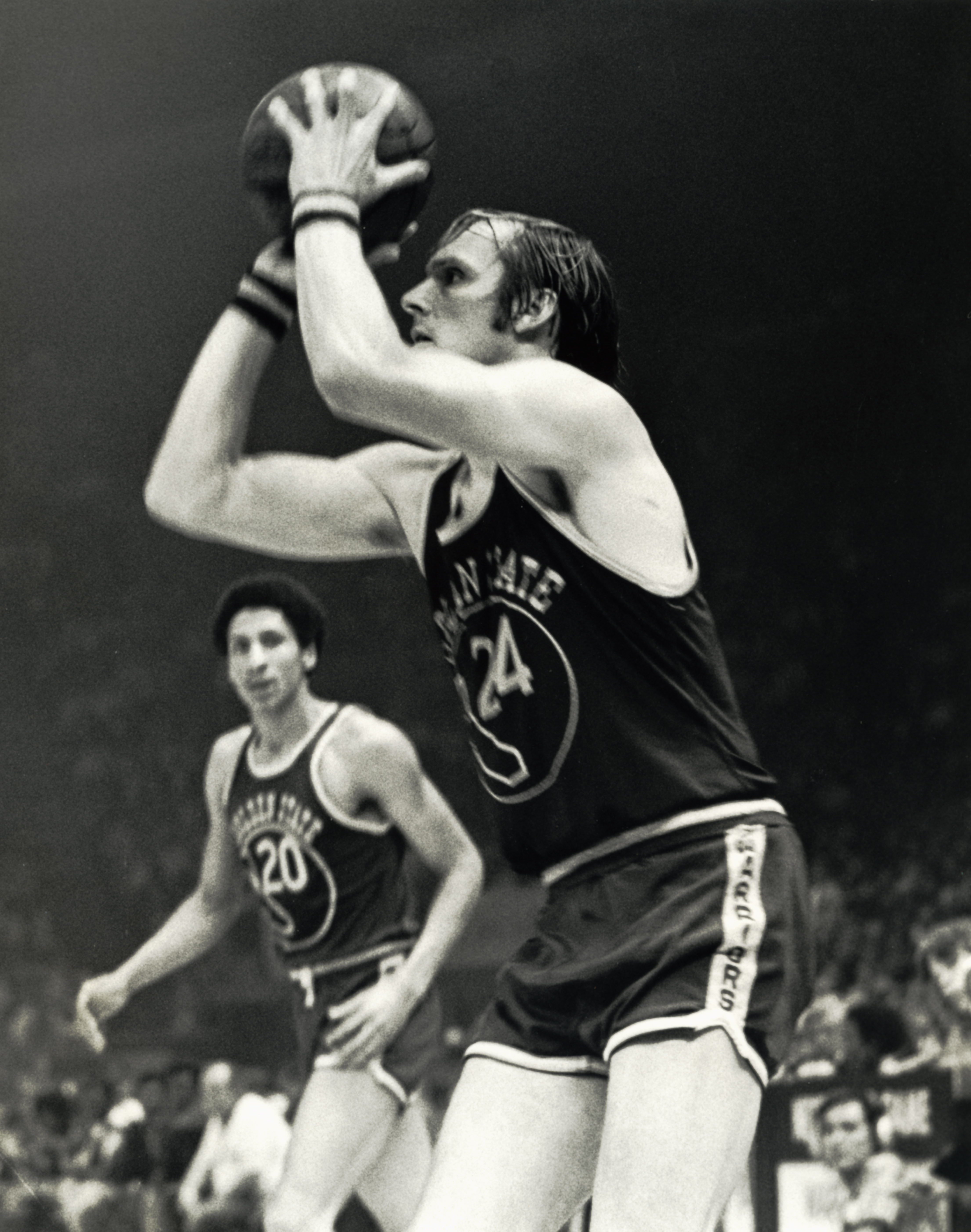
Career Stats: 23.2 PPG, 6.5 RPG, 5.1 APG, 1.4 SPG, 0.3 BPG
Career Achievements: 1x Finals MVP, 1x Rookie Of The Year, 8x All-Star, 1x All-Star Game MVP, 6x All-NBA Team Selection
Rick Barry is one of the greatest players in NBA and Golden State Warriors history. He entered the NBA in 1965-66 and immediately became one of the game’s best players. He ran away with Rookie of the Year honors, averaging 25.7 PPG and 10.6 RPG. In his second season, Barry would win the scoring title with 35.6 PPG and would be an All-Star for the first time. For some reason, he decided to go to the ABA after the season was over, where he would stay until 1973.
Barry continued to be one of the game’s top scorers when he returned to the NBA. In 1975, three seasons after his return, he would lead the Warriors to the NBA championship over the Washington Bullets. Barry would be named Finals MVP, averaging 29.5 PPG, 4.0 RPG, 5.0 APG, and 3.5 SPG. Barry would remain a 20.0 PPG scorer with the Warriors through 1978 before spending his final two NBA seasons with the Houston Rockets.
5. Bob Pettit (1954 NBA Draft)
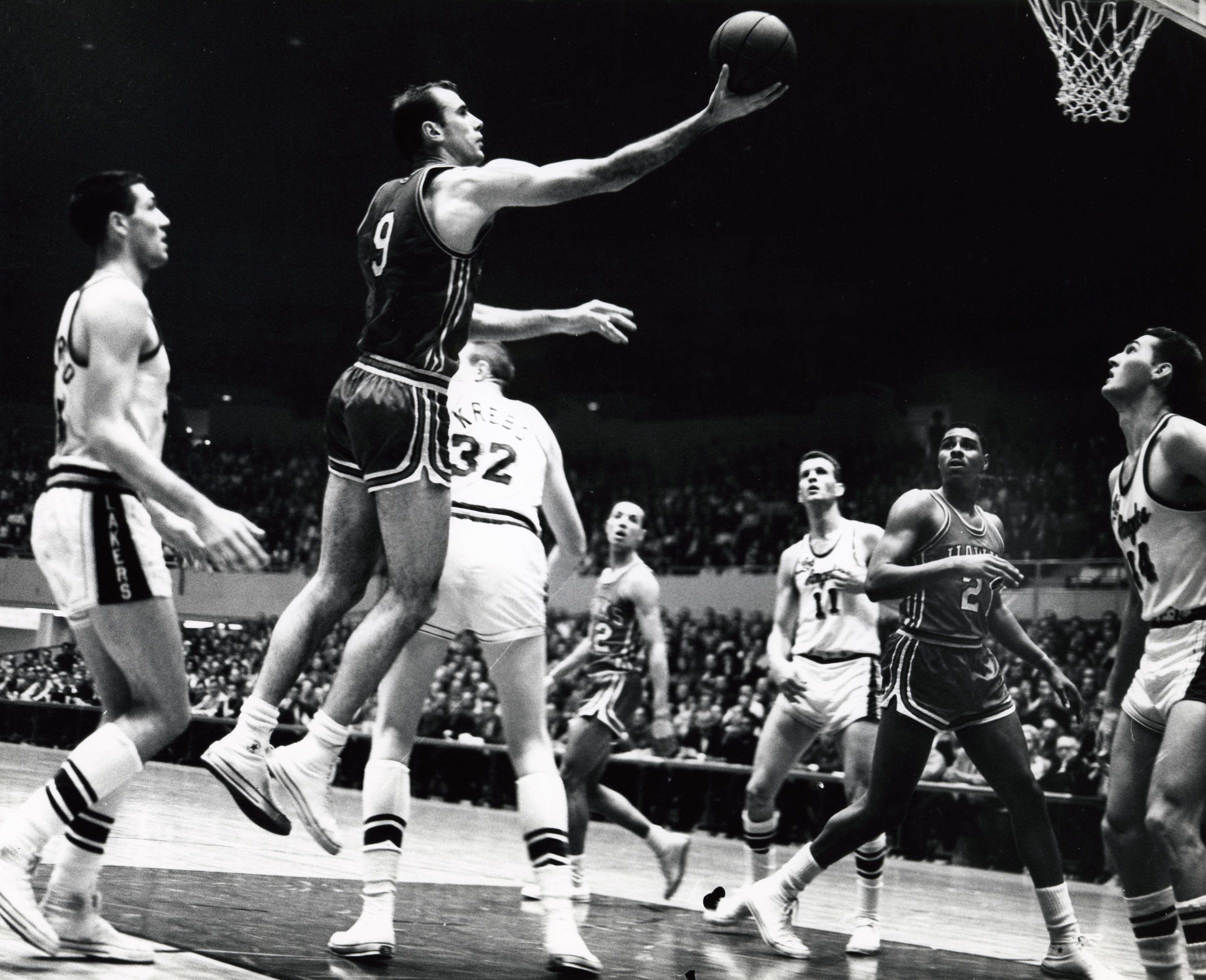
Career Stats: 26.4 PPG, 16.2 RPG, 3.0 APG
Career Achievements: 2x MVP, 1x Rookie Of The Year, 11x All-Star, 4x All-Star Game MVP, 11x All-NBA Team Selection
Even decades and decades later, bob Pettit is still one of the greatest power forwards in NBA history. That is how much of an impact he had on the game as he brought the Hawks to prominence in the 50s and 60s. As a rookie in 1954-55, Pettit was named Rookie of the Year after averaging 20.4 PPG and 13.8 RPG for the team. In his second season, Pettit would win a scoring title and MVP award, averaging 25.7 PPG and 16.2 RPG.
Two seasons after his first MVP award, Pettit would do the unthinkable. He helped the Hawks advance to the NBA Finals, where he and his team became the only ones to ever defeat Bill Russell and the Celtics in the NBA Finals. Pettit would add his second MVP in 1959 when he won his second scoring title with 29.2 PPG and 16.4 RPG. Pettit would be named an All-Star and All-NBA Team selection in every season of his career. He was forced to retire in order to support his family after just 11 seasons in the NBA.
4. Isiah Thomas (1981 NBA Draft)
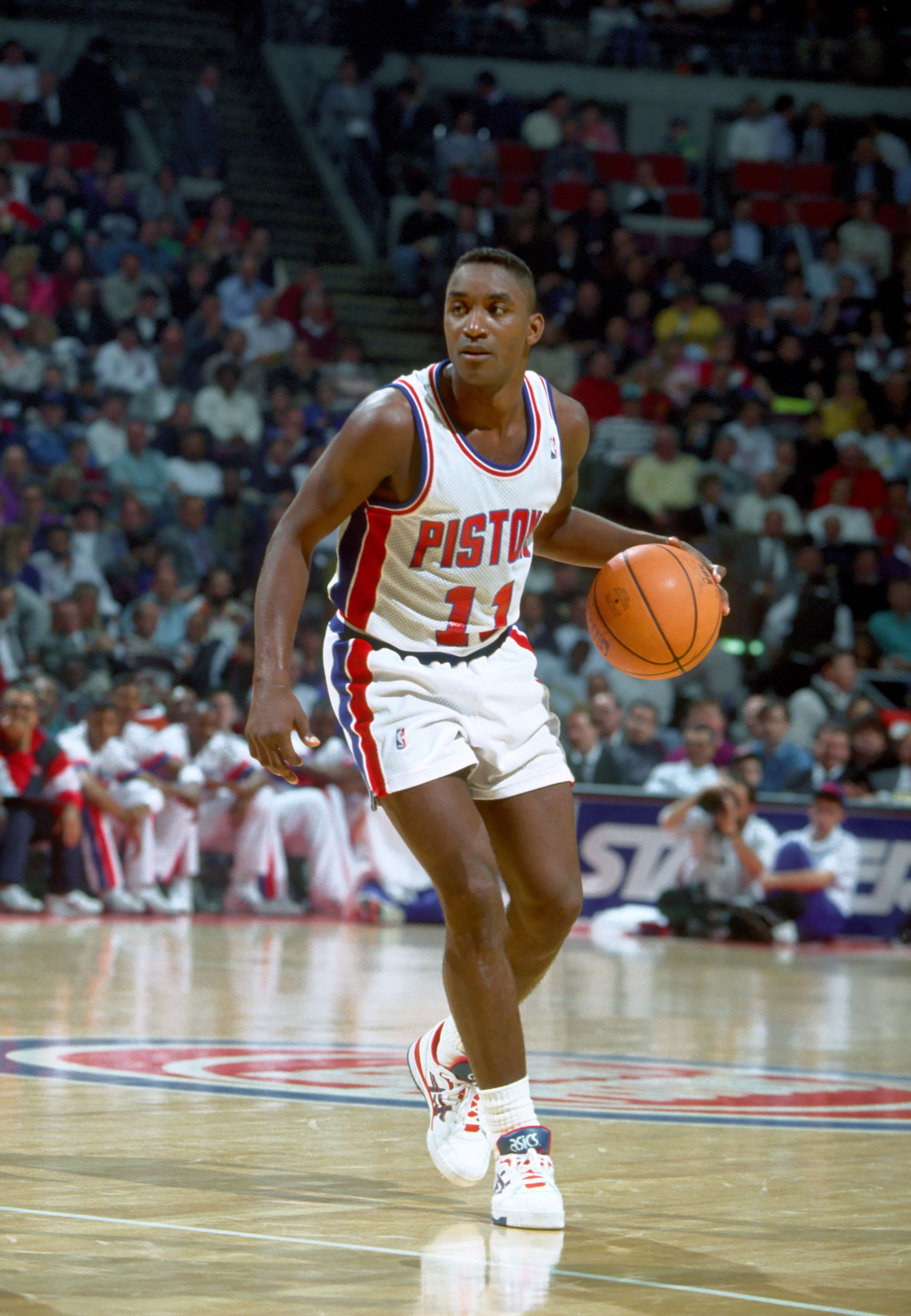
Career Stats: 19.2 PPG, 3.6 RPG, 9.3 APG, 1.9 SPG, 0.3 BPG
Career Achievements: 1x Finals MVP, 12x All-Star, 2x All-Star Game MVP, 5x All-NBA Team Selection
Despite being the face of one of the most hated teams in NBA history, Isiah Thomas is still held in high regard as one of the greatest point guards to ever play the game. Thomas would let his talent be known right away with the Pistons in 1981-82 as he would be an All-Star and All-Rookie player with 17.0 PPG, 7.8 APG, and 2.1 SPG. he would collect All-Star selections in every season of his career aside from his final one in 1993-94 and an assists title in 1985.
Thomas’ true impact would be felt come playoff time during the late 80s. Thomas would lead Detroit to three straight Finals appearances from 1988 thru 1990. After losing in 1988, Thomas and Detroit would not be denied the following two seasons. In 1990, he helped Detroit go back-to-back with a Finals MVP performance against Portland in the Finals. He averaged 27.6 PPG, 5.2 RPG, 7.0 APG, and 1.6 SPG to claim the award. Thomas would retire in 1994 and is still recognized as the greatest player in Pistons’ history.
3. Jerry West (1960 NBA Draft)
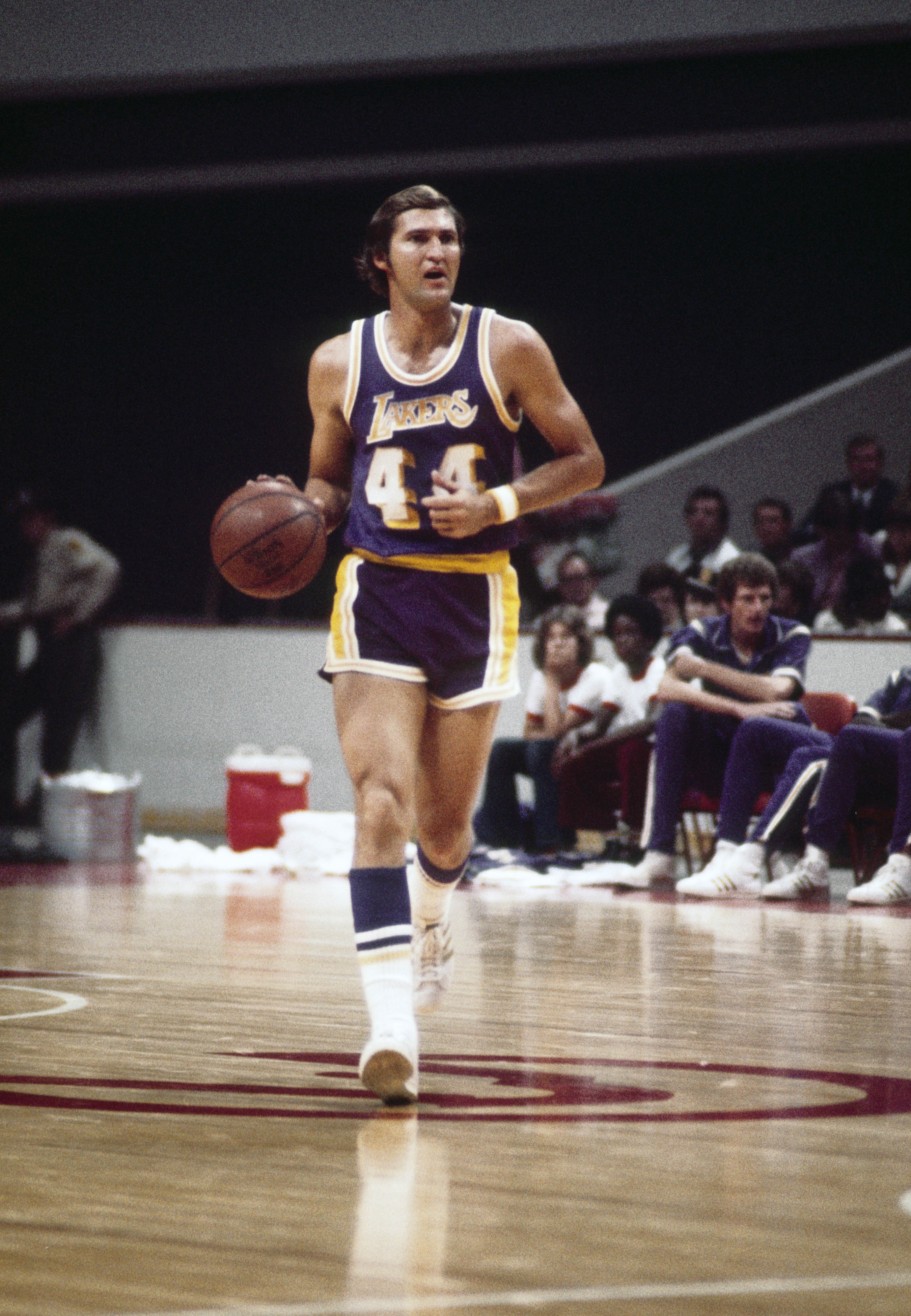
Career Stats: 27.0 PPG, 5.8 RPG, 6.7 APG, 0.1 SPG, 0.0 BPG
Career Achievements: 1x Finals MVP, 14x All-Star, 1x All-Star Game MVP, 12x All-NBA Team Selection, 5x All-Defensive Team Selection
Now, we get to the man whose silhouette is the logo for the National Basketball Association. Jerry West is one of the NBA’s greatest two-way players and an icon as far as the Los Angeles Lakers go. West was a 30.0 PPG scorer four times in his career and won one scoring title to show for it. The only thing holding back Jerry West from being in the GOAT conversation is the fact that he went 1-8 in the NBA Finals due to the presence of Bill Russell and the Knicks with unlimited Hall of Famers.
Jerry West was named Finals MVP in 1969, though, and is still the only player in NBA history to do so on the losing team. West wouldn’t get his championship until his 13th season in the NBA in 1973 over the Knicks. West averaged 27.0 PPG in his career in the regular season as well as 29.1 PPG in the playoffs. Despite his lack of success in the Finals, many still feel Jerry West is one of the greatest players in NBA history.
2. Kevin Durant (2007 NBA Draft)

Career Stats: 27.3 PPG, 7.1 RPG, 4.3 APG, 1.1 SPG, 1.1 BPG
Career Achievements: 2x Finals MVP, 1x MVP, 1x Rookie Of The Year, 13x All-Star, 2x All-Star Game MVP, 10x All-NBA Team Selection
Kevin Durant comes in at number two on this list as one of the greatest players in NBA history. He is one of the most offensively gifted as well while standing nearly seven feet tall but playing the game as if he was a pint guard or shooting guard. He attacks every defense with elite efficiency and is almost unguardable on the perimeter and from the mid-range. Durant started his career with the SuperSonics before they moved to Oklahoma City and won a Rookie of the Year in 2008.
Just two seasons later, Durant would win his first of four scoring titles over the next five seasons with the Thunder. In 2014, Durant took home the only MVP award of his career, with the Thunder averaging 32.0 PPG, 7.4 RPG, and 5.5 APG. Durant would join the Warriors from 2017 through 2019. With Golden State, he would advance to three straight Finals from 2017 thru 2019, winning back-to-back championships in 2017 and 2018. Durant would also win both Finals MVP awards for those titles and has since struggled to get back. In 2022-23, he may have his best chance as he is now amber of the Phoenix Suns with Devin Booker, Chris Paul, and Deandre Ayton.
1. Bill Russell (1956 NBA Draft)
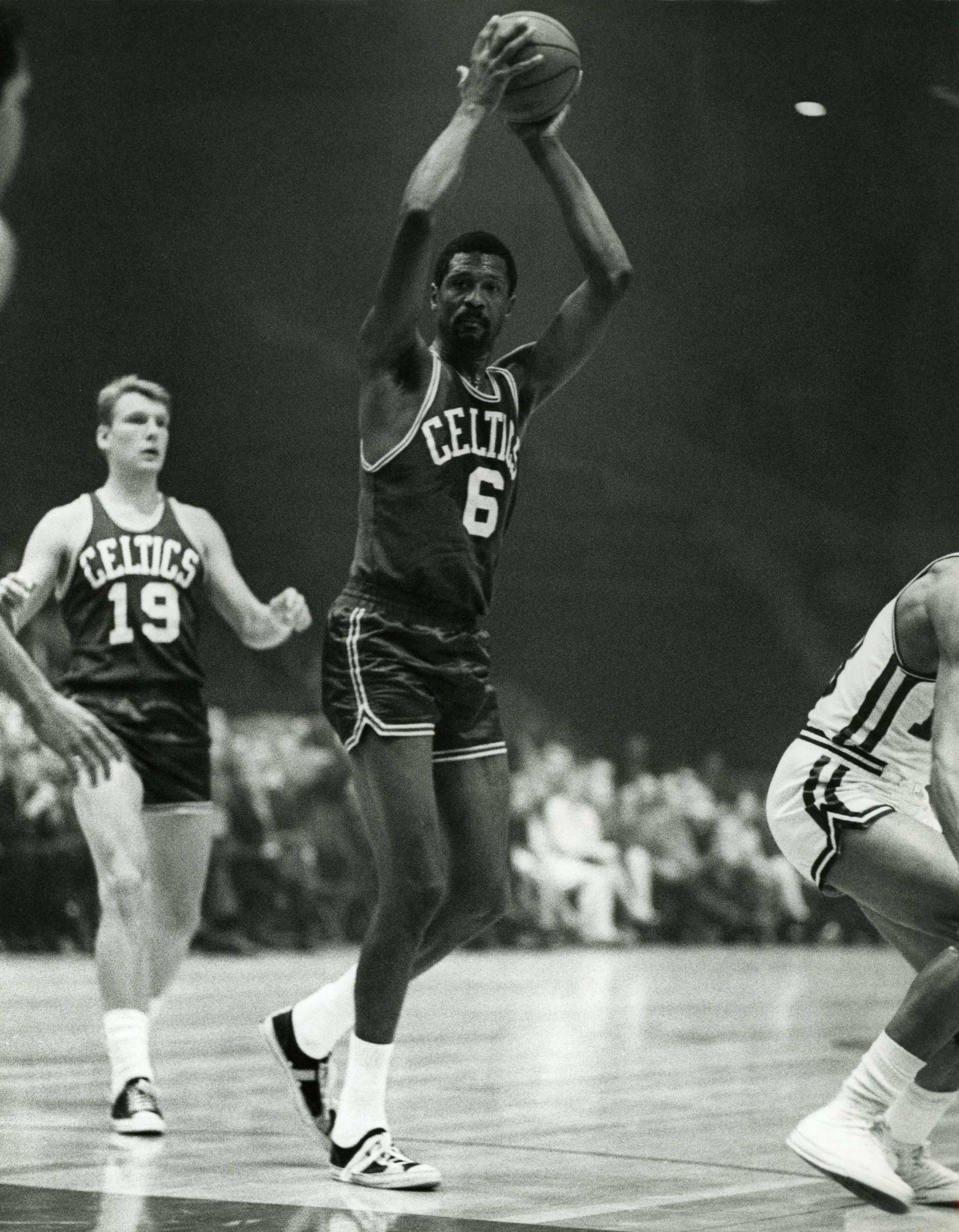
Career Stats: 15.1 PPG, 22.5 RPG, 4.3 APG
Career Achievements: 5x MVP, 12x All-Star, 1x All-Star Game MVP, 11x All-NBA Team Selection
The greatest second-overall pick in NBA history happens to be the greatest winner the sport has ever seen, Bill Russell. He was a winner at every level, including the NCAA ranks, where he won two national championships. Russell struggled to adjust to the league for one season as a rookie but made the adjustment to focus on the things he did best defensively to contribute to team success.
What followed was a run that may never be duplicated again in any sport. Russell and the Celtics would win 11 championships in his 13-year career, which included eight in a row from 1959 thru 1966. Not only was Russell an elite rebounder and defender, but he was one of the game’s greatest advocates for change as well. Russel left a mark that no one can match both on and off the court in his short career and is a big reason why the Celtics are one of the winningest franchises ever. When the five-time MVP passed away in 2022, Russell’s number six was retired across basketball, as it should be.
We sincerely appreciate and respect you as a reader of our site. It would help us a lot if you follow us on Google News because of the latest update.
Thanks for following us. We really appreciate your support.

